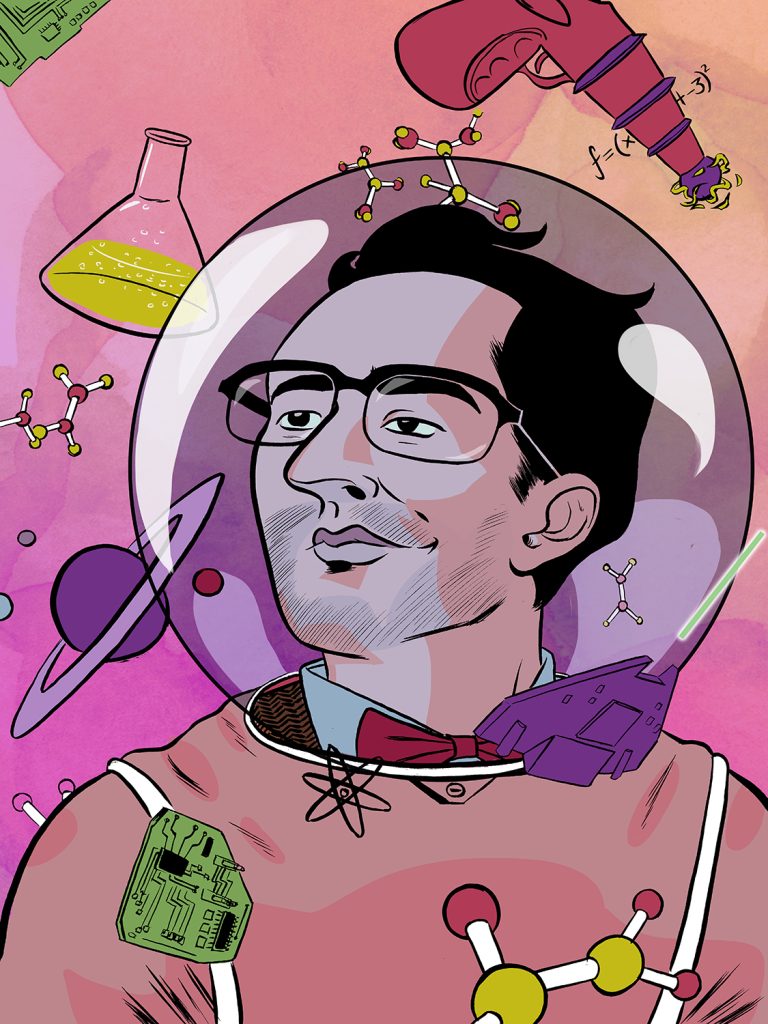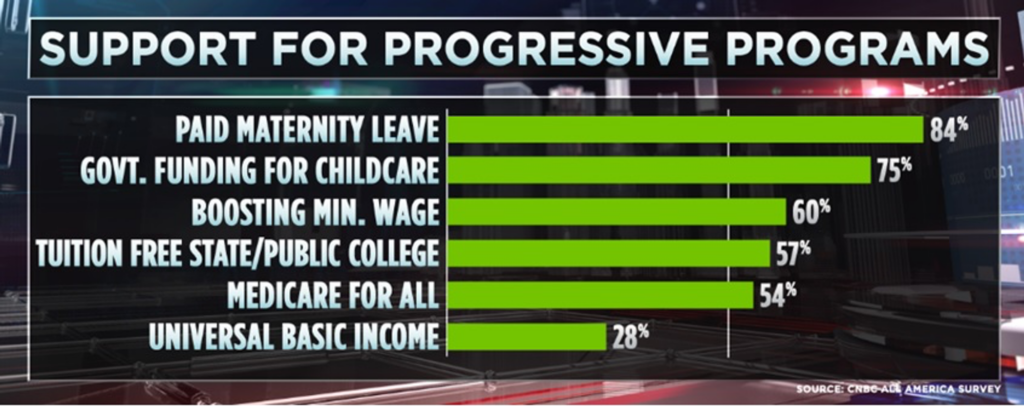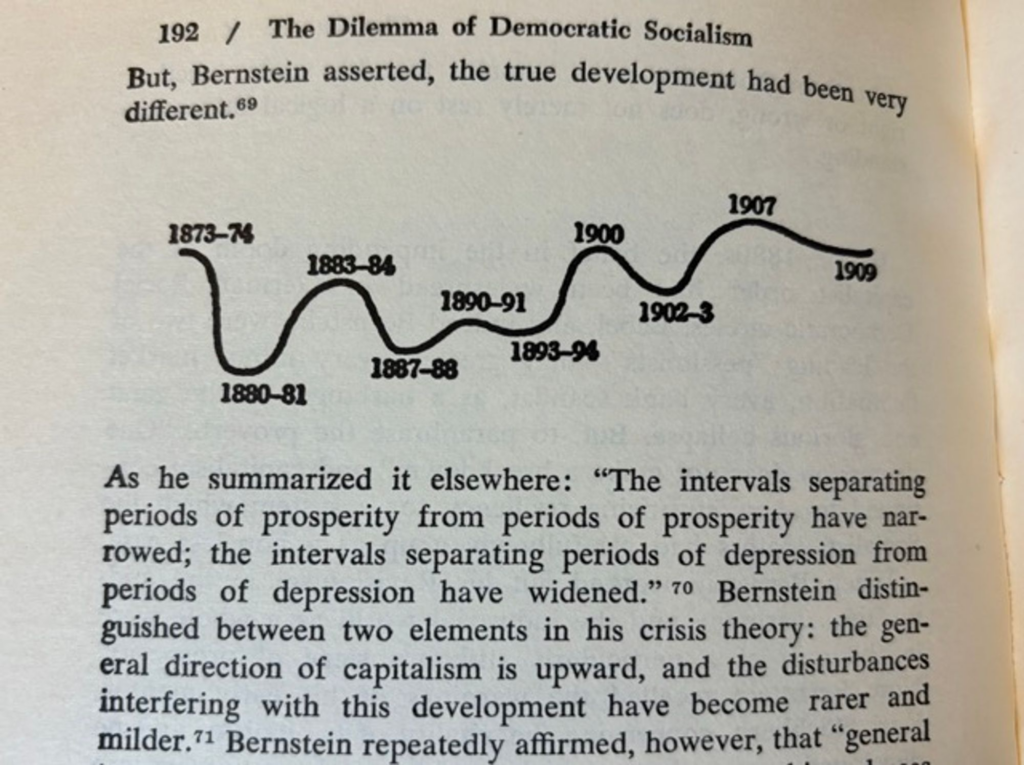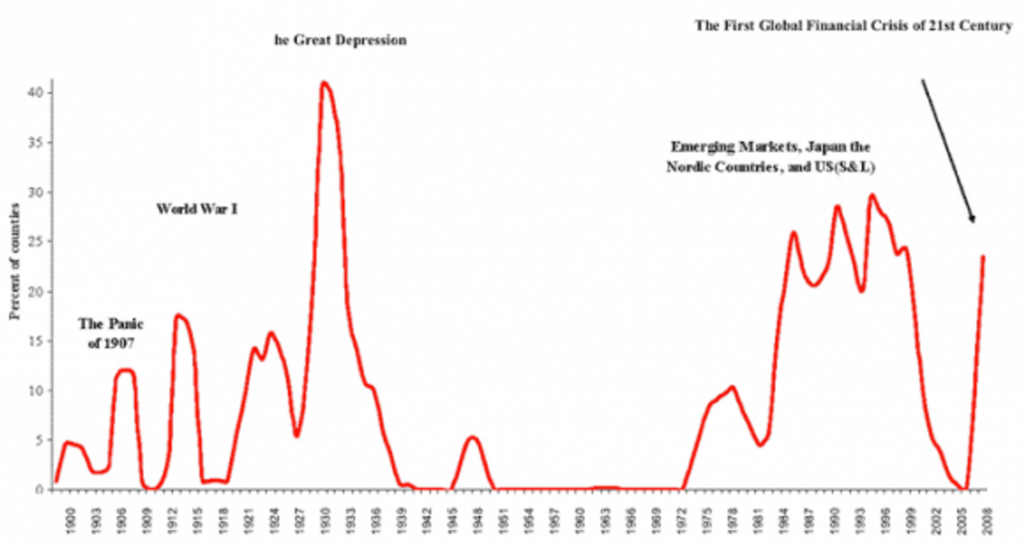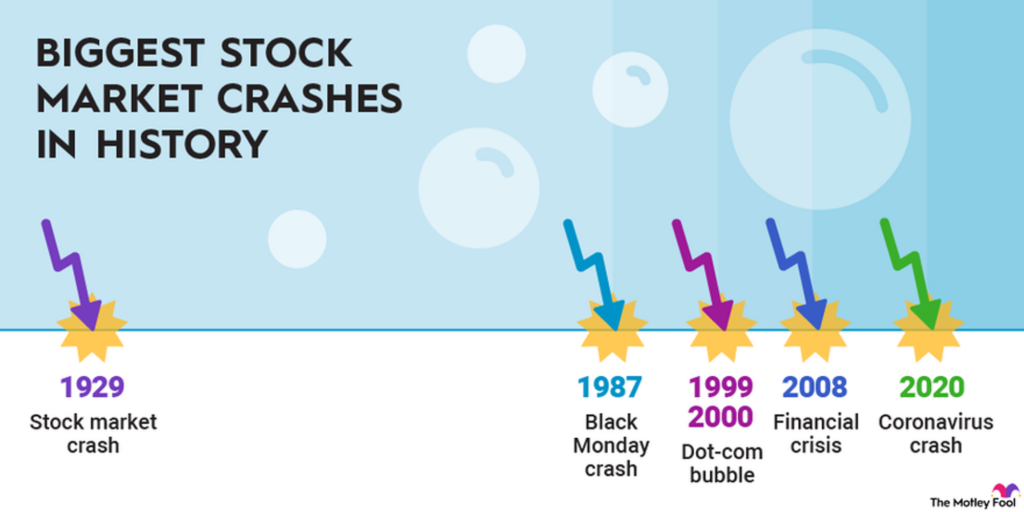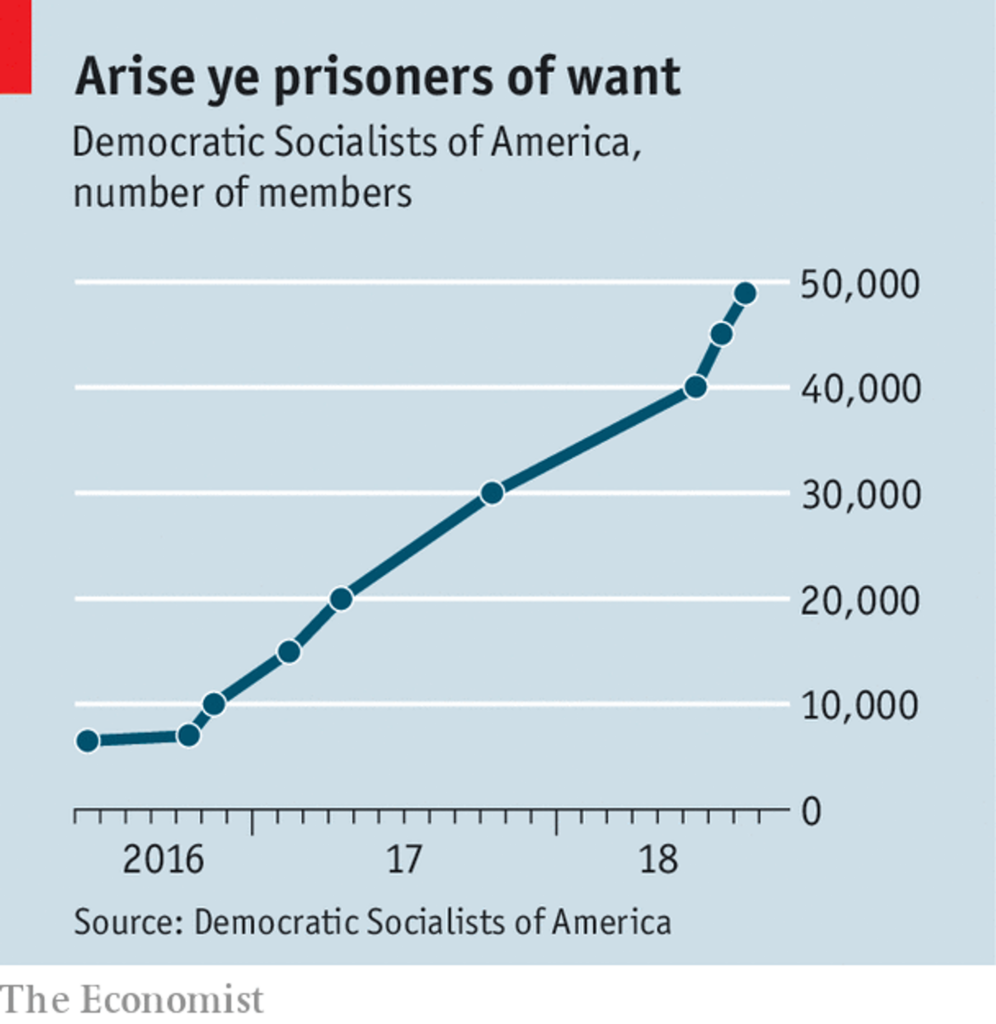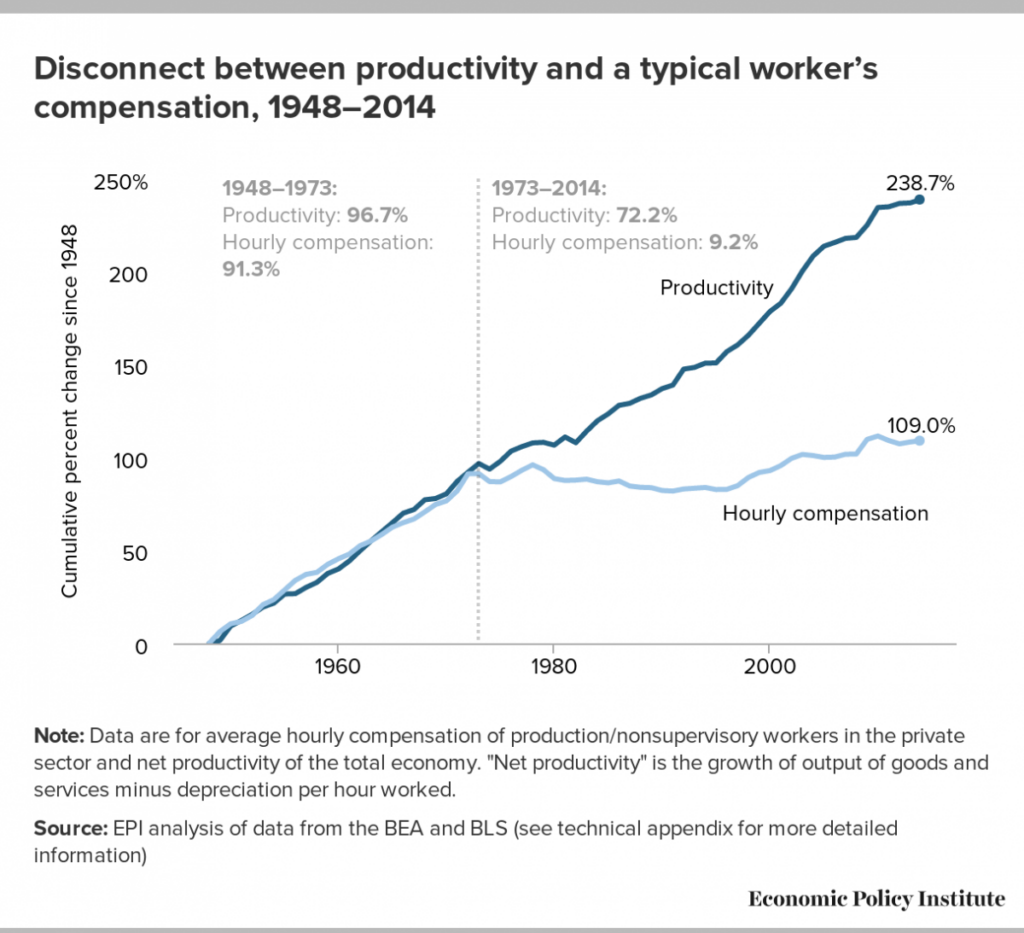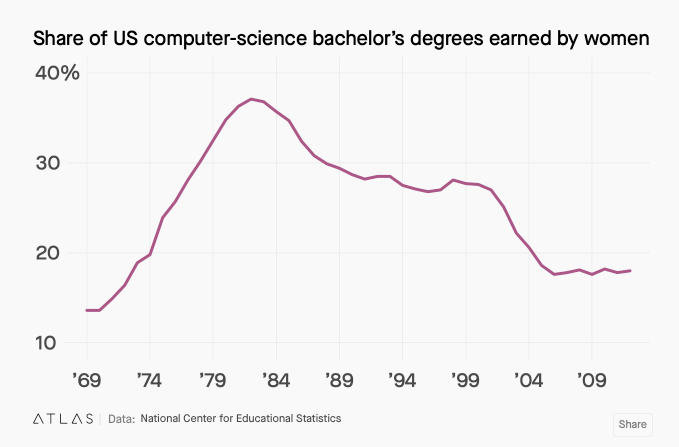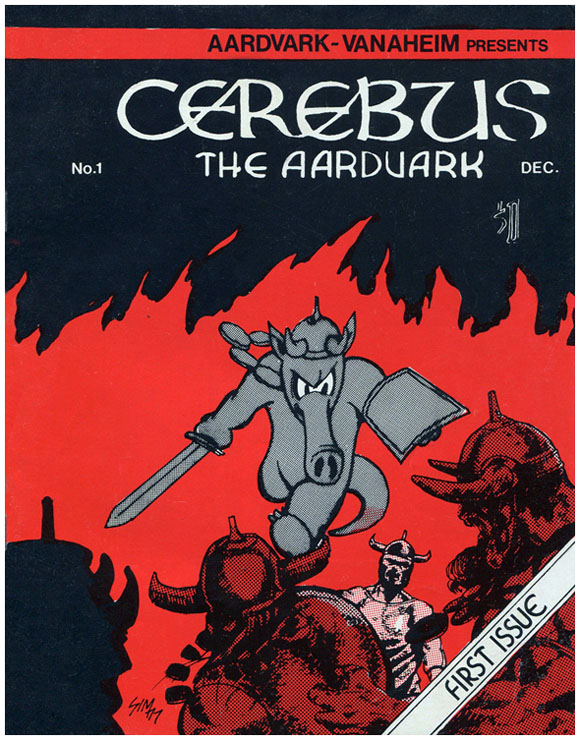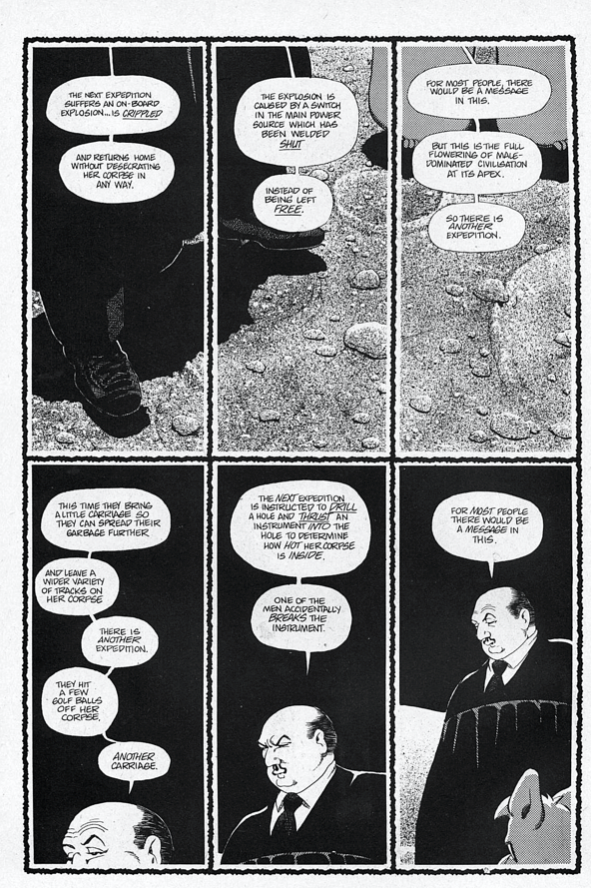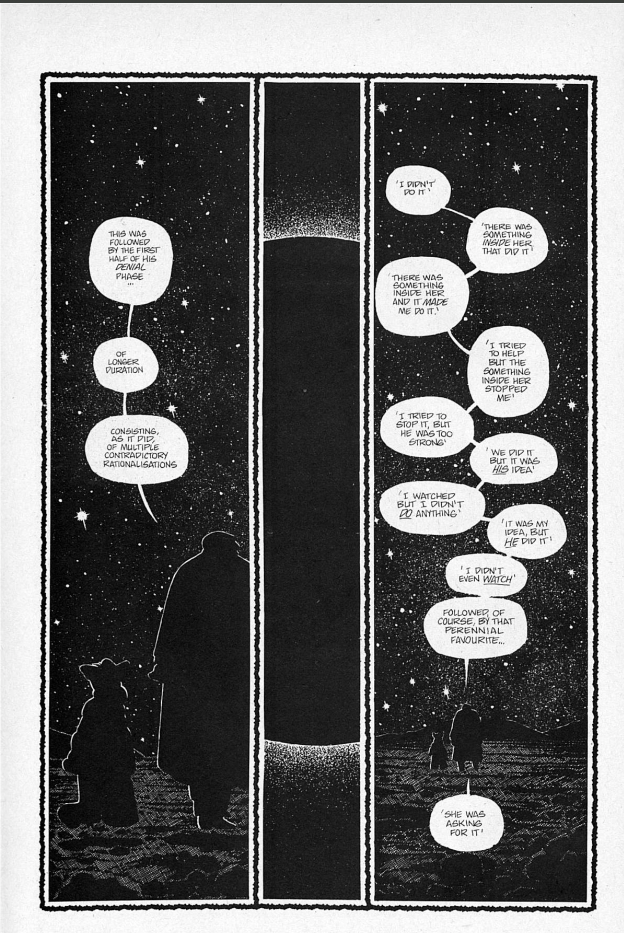YouTube Version | Podcast Version
Content Warning: This isn’t the sort of piece that’s going to dwell on gory details, but there’s no way to talk about the Israeli/Palestinian conflict and the history of the Jewish people without discussing some pretty horrific things, including genocide, mass murder, rape, torture, and suicide, as well as racism, antisemitism, and antisemitic imagery. Discretion is advised.
Part 1: Beyond the Zero
A screaming comes across the sky. It has happened before, but there is nothing to compare it to now.
It is too late. The Evacuation still proceeds, but it’s all theatre. There are no lights inside the cars. No light anywhere. Above him lift girders old as an iron queen, and glass somewhere far above that would let the light of day through. But it’s night. He’s afraid of the way the glass would fall—soon—it will be a spectacle: the fall of a crystal palace. But coming down in total blackout, without one glint of light, only great invisible crashing.
Gravity’s Rainbow, Thomas Pynchon, 1973
In 136 CE, for the third and final time, the Jewish people rebelled against their Roman masters under the leadership of their Messiah, Shimon Bar Kokhba.
For over a thousand years the Jewish people had dwelled here in a land promised to them by God. Great empires have come and gone. They were exiled in Egypt and enslaved, but returned, an event celebrated every year on the holiday of Pasach or Passover. Their kingdom, Israel, was split into two, Israel and Judah. Israel was then destroyed by the Assyrians, while Judah was later conquered by the Babylonians who smashed their holy temple and exiled their people. But the Persians came and the people were restored, and a Second Temple built, an event celebrated every year on the holiday of Purim. The Macedonians arrived, Judah became known by its Greek name Judea, and then Macedonia gave way to the Selucids, from whom the Judeans rebelled and won full independence for the first time in centuries, an event celebrated every year on the holiday of Hanukkah. That lasted less than a hundred years, until the arrival of the Romans.
This happened before, but there was nothing to compare it to now.
The Jews rebelled against the Romans. The Romans slaughtered them and burned down their Second Temple. They rebelled again. And again. And they won. They were righteous, God was on their side, and Bar Kokhba became king of a country he gave the old name, the name of their forefathers. He called it Israel.
Bar Kochba ruled Israel for all of two and half years before the Romans returned. Bar Kochba died, and the Romans went on killing, burning down over a thousand towns and villages and with them their inhabitants. The Jews who weren’t killed or captured and enslaved, starved. Refugees scattered to the corners of the world. Only a few thousand Jews remained in the Promised Land, in remote Galilee.
The Roman emperor Hadrian renamed the land. It would no longer be Judea or Israel, but Palestine, an insult, the Roman word for the Jews’ ancient enemies, the Philistines.
For almost two thousand years, Jews have told this story. Every year we ritually say, “next year in Jerusalem”. Next year we will return to the land of our ancestors.
In 2024, bombs rain down on homes, on shelters, on hospitals. The refugees cannot scatter, they’re not allowed, they have nowhere to go. A people who tell themselves the story of how their ancestors were murdered and starved block trucks carrying food to the starving.
What does this mean? Why shouldn’t Israel destroy its enemies, lay waste to ‘Amalek’ man, woman, and child as in the Holy Scripture, as cited by the Prime Minister? After all, attacking and starving civilian populations has been part of warfare since the beginning, from the Siege of Troy to Leningrad and Hiroshima. Why is this any different?
And of course, it isn’t. Not really.
And that’s the point.
In 1859, Swiss businessman Henry Dunant witnessed the aftermath of a battle in which the wounded and dying lay moaning in the field without medical aid of any kind. Horrified, he went on to found the Red Cross, an international organization for caring for war wounded, and helped organize the First Geneva Convention in 1864, in which member states agreed to allowing and protecting organizations like the Red Cross that help war wounded.
Meanwhile in 1863, the Union Army in the American Civil War adopted the Leiber Code, authored by Fritz Lieber, a German-Jewish American immigrant and legal scholar, which forbid the summary execution, torture, and mistreatment of prisoners of war, one of the first codes of its type.
Over the following decades, more conventions and protocols were agreed to, particularly following the horrors of the Second World War. The Third Geneva Convention, adopted in 1929 and revised in 1949, guarantees protection and safe treatment for prisoners of war (itself updating the Hague Conventions of 1899 and 1907). The Fourth Geneva Convention, from 1949, guarantees the protection of civilians in time of war. These conventions are now International Law. Grave violations of these laws are called “war crimes”. Those who violate the laws are supposed to face consequences from the larger international community. An International Criminal Court was established in the Hague to try such crimes and other “crimes against humanity”.
The Geneva signatory countries declared, as a group, that intentionally attacking and killing civilians is illegal. Starving civilians is illegal. Torturing and killing prisoners of war is illegal. These are things we’re not supposed to be doing anymore. Because they’re wrong. Because we looked at the mass deaths and genocides of the Second World War and said this is fucked and we’re not doing this anymore.
But there’s a funny thing about war crimes.
Russia is a signatory of the Geneva Conventions.
In 2019, Russia bombed four hospitals in Syria, only four of many hospitals and medical facilities targeted by Russia or the Syrian government over the course of the Syrian Civil War. Russia has also repeatedly bombed civilian encampments there.
In 2022, in Ukraine, Russia bombed a hospital in Mauripol. US president Joe Biden publicly called Russian president Vladimir Putin a war criminal. In 2023, the International Criminal Court issued an arrest warrant for Putin for war crimes. And while this is clearly justified (and Russia has continued bombing hospitals in Ukraine as recently as July 8th, 2024, when they bombed a children’s hospital), why did none of this happen when Russia committed war crimes in Syria?
It often seems like for us in the West that things that happen in countries where not-white people live don’t matter or don’t really happen.
People sometimes suggest we wouldn’t care so much about Israel if it wasn’t a Jewish state, and they honestly have a point. If Israel were not a developed country with a mostly white-presenting populace, a populace who seems like us, it might go as under-the-radar as the conflict in Syria. At the same time, there is a good reason why we might talk more about Gaza than we do about Syria or, say, the Rohingya in Myanmar or the Uyghurs in China. Israel is the largest cumulative recipient of US aid in the world, most of which is in the form of grants for the purchasing of American weapons (thus really a subsidy for US arms manufacturers to Israel). Particularly as an American, I think it’s worth asking what exactly Israel is doing with all that money and all those weapons. And if maybe part of the reason some seem to support Israel so strongly against its critics is because the people its killing are the same kind of people who’s killings are being ignored in Syria.
Israel is a signatory of the Geneva Conventions.
In 2024, the International Criminal Court issued arrest warrants for both Israeli and Hamas leaders. Israel denied the allegations, saying it “fights with one of the strictest moral codes in history, while complying with international law and boasting a robust independent judiciary” and further calls the allegations a “blood libel”, in other words a deliberate, antisemitic lie—and we’ll get back to the way the Israeli right meets any criticism with howls of antisemitism later. President Biden denounced the charges, saying there was “no evidence”. The Republican-controlled US House of Representatives voted to sanction the ICC for making these charges (though these sanctions are unlikely to pass the Senate).
And yet, it seems incontrovertible that Israel’s protestations are lies. As per CNN, “At least 20 out of 22 hospitals identified by CNN in northern Gaza were damaged or destroyed in the first two months of Israel’s war against Hamas, from October 7 to December 7” with 14 directly hit. Israel has bombed refugee camps full of civilians. It says that it’s targeting militants who are using civilians as human shields. But, as per the Pace Criminal Justice Blog, “According to article 50(3) of Protocol 1 ****of the Geneva Conventions 1949, even if a civilian population includes some armed people, still they do not lose their civilian status. For example, if militants enter a park filled with civilians – an attack cannot be launched in the park even if intended to only target the militants because under the principle of distinction the civilians ought to be protected.”
And, of course, leaving an active war zone without any functioning medical facilities is its own kind of humanitarian crisis.
Israel has knowingly killed civilians, executed journalists, and kept prisoners in such degraded condition that their limbs required amputation, and the population of Gaza is slowly starving to death while anti-Palestinian activists block and even attack aid trucks. The World Food Program has halted operations in Gaza after repeatedly being attacked by the Israeli Defence Force. This report on how prisoners of the Israelis are being treated—bound immobile, hooded, tortured, fed through a straw—may be one of the most horrific things I’ve ever read. And this is just what gets reported by media in the US, Israel’s greatest supporter. Netanyahu claimed in an address to the United States Congress that almost no civilians have been harmed in Gaza, meanwhile doctors there report daily cases of preteen children who’ve been shot in the head, something that typically only happens when someone is specifically targeted by a shooter.
As of this writing, over 40,000 people are confirmed dead. But that doesn’t really encompass the scale of what’s happened. More than 60% of Gaza’s buildings have been destroyed, and 85% of the population—1.9 million people—have been displaced. The Lancet—the world’s most prestigious medical journal—estimates that the total deaths including the effects of starvation and lack of medical care and shelter could be as high as 186,000 or 8% of the population. And if death continues at this rate, the number could go up to 335,500 by the end of the year.
One objection made by the kind of people who say, “well, what do you expect? this is war,” is “what about the United States?” Didn’t our country and others, for example, kill hundreds of thousands of civilians in Iraq? Remember Abu Ghraib? Shouldn’t George W. Bush and a lot of other people be arrested for war crimes?
The answer is yes. A thousand times yes. Either the idea of war crimes means something or it doesn’t. These rules apply to everyone or they apply to no one. It doesn’t matter if it’s Syria, Israel, Russia, or the United States. That’s how the law is supposed to work.
So how did we get here?
This video is brought to you by my Patreon at Patreon.com/ericrosenfield. I’m apparently celebrating getting into the YouTube Partner Program by releasing a video that’s going to get extra-specially-totally demonitized, so if you appreciate this consider chipping in as little as $1 an episode to get exclusive authors notes, deleted material, and other goodies. You can also support me with a one-time payment at https://ko-fi.com/literatemachine.
Part 2: Une Perm au Casino Hermann Goering
Now what sea is this you have crossed, exactly, and what sea is it you have plunged more than once to the bottom of, alerted, full of adrenalin, but caught really, buffaloed under the epistemologies of these threats that paranoid you so down and out, caught in this steel pot, softening to devitaminized mush inside the soup-stock of your own words, your waste submarine breath? It took the Dreyfus Affair to get the Zionists out and doing finally: what will drive you out of your soup-kettle? Has it already happened? Was it tonight’s attack and deliverance? Will you go to the Heath, and begin your settlement, and wait there for your Director to come?
Gravity’s Rainbow, Thomas Pynchon, 1973
According to the Biblical Narrative, some 4,000 years ago God told Abraham to migrate from his home in Chaldea (in modern Iraq) to a land called Canaan on the Western Mediterranean that would be promised to him and his descendants. Those descendants, God told, would number as many as the stars in the sky and their kingdom would stretch from the Nile (in Egypt) to the Euphrates (in modern Iraq).
With his wife’s slave, Abraham had a son named Ishmael, held by both Jewish and Islamic tradition to be the ancestor of the Arab people. With his wife, he had another son named Isaac, who in turn had a son Jacob, whom God renamed Israel.
The Arabs and the Jews are siblings.
Israel’s son Joseph would lead his family to Egypt to escape a famine, where they would ultimately be enslaved. 430 years later, Moses would lead Israel’s decedents, the “Israelite” people, out of Egypt, and his successor Joshua would finally conquer Canaan for them, making it the “Land of Israel”.
None of this actually happened.
At least, there is no corroborating evidence for any of the story I just told. No Egyptian records of Israelite slaves, freed or otherwise, or of the plagues of Moses of the Biblical narrative, no archeological evidence of a mass conquest in the region in the given time period. The walls of Jericho did not fall when Joshua blew his horn.
The oldest recorded mention of Israel is found in the Egyptian Merneptah ****Stele, dating from around 1,200 BCE, that says Egypt conquered a place called Israel. Indeed, we know that Egypt controlled this part of the Eastern Mediterranean until sometime in the 1,100s BCE, when their empire contracted amidst the Great Bronze Age Collapse. A common theory is that during this crisis, there was some kind of revolt among the Israelite underclass, perhaps lead by a figure like Moses, and that after generations of oral history this transformed from them being slaves of Egypt in Israel to them being slaves in Egypt itself.
Palestinians have sometimes claimed that they are actually the descendants of the Canaanite people who were conquered by the Israelites thousands of years ago. While that conquest probably didn’t happen, this isn’t quite as far-fetched as it seems—a genetic study from ancient Canaanite burial sites found genetic links with modern Palestinians. But the funny thing is that they found the same genetic links in modern Jews.
The Palestinians and the Jews are siblings.
In 1099CE, the First Crusade arrived in Palestine and the Crusaders sieged Jerusalem for seven weeks. When they finally breached the walls, they slaughtered tens of thousands of Muslim and Jewish inhabitants.
The Crusaders then set up four states in the Levant. Jews fled for their lives. It’s estimated that of 50,000 Jews living in the region before the Crusade, afterwards only 200 remained, mostly hiding in the mountains of the Upper Galillee.
Trained warrior knights weren’t the first to answer the Pope’s call to retake the Holy Land, though. The first were a rabble of peasants lead by a Priest who rampaged through the Rhineland massacring Jews, murdering “probably one fourth to one third of the Jewish population of Germany and Northern France at the time”.
This group proceeded to make it all the way to the Turkish Seljuk Empire, whose military quickly wiped them out.
Ironically, for most of its history, the Muslim world has been safer for Jews than the Christian one. For Christians, it was doctrine that the Jews were responsible for the death of the Savior and the status of Jews in Christendom essentially depended on the whims of a particular monarch, while in Islam it was established religious law that people of other religions could live in Muslim lands as long as they paid an extra tax and observed some other restrictions. While this did not prevent Jewish oppression by Muslims, and treatment varied considerably across places and times, it did lay open the opportunity for flourishing. Jewish Communities in Muslim Spain, for example, experienced a golden age of prosperity and cultural development, but when Christians retook the peninsula they instituted an Inquisition to forcibly convert and monitor the Jewish inhabitants, and then in 1523 expelled them all anyway.
In Medieval Europe, the Christian church officially outlawed usury, which at that time meant any lending money at interest at all. However, Jews had no such prohibition. Some of the rulers of Europe discovered this loophole could be used to their advantage, because while they couldn’t excessively tax the nobility (on whom their rule depended), they could tax the Jews as much as they wanted, and Jews could loan money to the nobility at interest. Thus the Jews would lend money at interest to the nobles with the monarchs taxing away much of the profits. And Jews were often forbidden from most other trades, thus steering them into the business. And so, during the medieval period, these Jewish money lenders, like most of the merchant strata, did not become very wealthy. On top of this, money lending was something of a fraught position to be in, since if the nobles didn’t pay them back, the Jews might not be able to pay the King’s taxes, with potentially fatal results. Further, this practice gave birth to something known as the “blood libel”.
A rumor began to spread that Jews were kidnapping Christian babies and using their blood to make matzos (despite the Jewish prohibition on consuming blood of any kind). So if you were indebted to a Jewish person and couldn’t or didn’t want to pay them, you could simply dig up the corpse of a baby and claim that you “discovered” it on Jewish land as evidence of their depravity. The Jews might then be rounded up and executed, either by authorities or by a lynch mob while authorities looked the other way, and your debt would disappear.
Sometimes these blood libel accusations would lead to pogroms, riots where Jewish communities were assailed by mobs and in some cases destroyed. Pogroms could also occur during economic downturns, plagues, and other calamities, as Jews were blamed directly or indirectly through their misdeeds and supposed devil worship.
This is the practice that the Netanyahu government is comparing accusations of war crimes to, that pointing out that his government is murdering children is just a new form of blaming Jews for sacrificing gentile babies.
What the f—
Antisemitism created Zionism. The two phenomenon walk hand-in-hand and reflect one another.
Following a series of Jewish expulsions in late Medieval Europe (including England, Hungary, Spain, Portugal, Austria, and Germany) by the mid-16th century, 80% of the world’s Jews lived in Poland, whose rulers found Jewish merchants and money-lenders useful for their economic development. However, in 1795, Russia, Austria-Hungary, and Germany ganged up on Poland and divided its territory among themselves.
Russia, which had previously had essentially no Jewish population, suddenly found itself with one of the largest in the world. It responded by restricting Jews to the region that had formerly been part of Poland, which became known as the Pale of Settlement, and strictly curtailing their rights. But during the reign of Tsar Alexander II (1855-1881), some of these restrictions were relaxed and Jews were encouraged to embrace Russian culture and become “Russified” parts of the Russian nation. However, after Tsar Alexander was assassinated, his murder was vaguely blamed on “Jews”, setting off waves of anti-Jewish riots across the Pale (which gave English the Russian word “pogrom”), and the new, viscously antisemitic Tsar Alexander III instigated laws massively curtailing Jewish settlement and occupations, condemning them to poverty.
The history of the Jews in Russia from 1882 to 1917 is one of increasing hostility, scapegoating, and ever more violent pogroms, tacitly approved by the state, which saw the murder of thousands of Jews, rape and assault of many more, and untold amounts of property damage.
Jews who saw themselves as Russian, who wanted to assimilate into Russian society, found themselves now forcefully rejected from it. As Jewish writer Lev Levanda put it, “When I think of what was done to us, how we were taught to love Russia and the Russian word, how we were lured into introducing the Russian language and everything Russian in our home … and how we are now rejected and hounded …. my heart is filled with corroding despair from which there is no escape.”
Meanwhile, in the West, the rise of the Enlightenment saw equal rights granted to Jews for the first time, beginning in the United States upon its founding in 1783 and France in 1789 following the French Revolution. The Enlightenment philosophy of equality under the law that defined the new capitalist nation-state would include Jews.
Capitalism allowed the merchant class to attain real wealth to rival the nobility for essentially the first time, and that included Jewish merchants, with the most famous being the Rothschild banking family beginning in the 1760s. A side product of this, of course, is that the Rothschilds have become the subject of every manner of unsubstantiated conspiracy theory. For some funny reason, gentile banking families including the Welsers whose fortunes go back to the 1500s, or the Oppenheims, Mellons, and Morgans don’t get quite the same attention.
But as nationalism and racism developed over the course of the 19th century, so did antisemitism. The term “antisemitism” itself emerged this century to give the old, Medieval “Jew hatred” a new, more scientific sheen. (Of course, “Arabs” are also semites, and in its original use the term intentionally lumped Jews in with Arabs as people who are not European, though of course now the term almost exclusively refers to prejudice against Jews.)
In France in 1894, Jewish military officer Alfred Dreyfus was framed for treason, causing France’s first wave of pogroms against Jewish communities since 1789, with riots “breaking out in 55 cities”. Meanwhile, openly antisemitic political parties gained traction in the various political legislatures of the region.
The last real attempt by Jews to retake Palestine had occurred in 602CE (while allied with the Persian Sassanids) and while there was always some Jewish presence in Palestine, the population had never really rebounded from the First Crusade. Since then, the notion of a return of the Jews to the Promised Land had taken on a purely religious significance—Jewish diaspora was a punishment from the Lord, and only the Lord would restore the Jewish people through the appearance of the Messiah. Even today a lot of ultra-religious Heredi Jews think the idea of the modern state of Israel is heretical. At least one would-be Messiah had in fact arrived, Sabbathai Zevi, who’d moved to Jerusalem in the 1660s and attracted many followers before getting arrested by the Ottomans and forcibly converted to Islam.
As I talked about in Loki or How Conservatives become Fascists, as Feudalism gave way to Capitalism, a new idea emerged with it: nations. This was the idea that a people were not merely peasants and nobles or Protestants, Catholics, Jews, and Muslims, but distinct people with particular cultural characteristics, and this was folded into the new idea of race, such that people would talk seriously about how, for example, the “English race” was superior to the “Sicilian race” and by the early 20th century would use badly formulated and administered IQ tests to prove it. Thus also emerged the idea that the Jews were themselves a nation and a race, whether or not they actually believed in the religion of Judaism, a sense enhanced by the endless rejection and othering they experienced from the nations all around them.
Nationalism, in turn, was the idea that a distinct “nation” had a right to self-determination, free from interference by other nations—in other words, that a nation should have a nation-state. (This gets conflated in modern English to the point where “nation” now more often simply means “country”, but that’s not how I’m using it in this piece.) But, of course, the Jews didn’t have a state. And where would a state be but, Messiah or no, in the place where the Jews began and to where they’d always dreamed of returning?
There were some early iterations of this; notably, Napolean had rallied Jews into his army in 1799 by promising to restore them to Jerusalem, but had never actually captured it. Another example is how, in 1787, Russian military leader and philosemite Grigory Potemkin formed a Jewish Cavalry regiment with the aim of using them to take Jerusalem as part of his larger goal of conquering the Ottoman Empire, but he died before it could be attempted.
It’s only really in the late 19th century with rising persecution that you start seeing Jewish writers seriously proposing the creation of a new homeland in Palestine, like Moses Hess in 1862, Leon Pinsker in 1882, and most notably Theodor Hertzl in 1896 after which he would form the First Zionist Congress in 1897. (Named after “Zion”, a hill in Jerusalem often used as a synonym for the city and for the proverbial “Land of Israel” as a whole.)
As Herzl announced in his speech at this event, it was antisemitism that had created the movement, without which the Jewish people might have been happily assimilated. “Anti-semitism,” he said, “has given us our strength again. We have returned home… Zionism is the return of the Jews to Judaism even before their return to the Jewish land.” He’d earlier remarked that “Only antisemitism had made Jews of us”.
But most Jews did not want to go to Palestine, at the time a fairly neglected Ottoman backwater, where Jews did not have civil rights and were under constant persecution by local authorities.
Between 1881 and 1914, 2 million Jews left the Russian Empire, the largest Jewish migration in history. Of those more than 1.5 million came to the United States (including members of my own family), which at the time still had open borders for everyone except the Chinese, because racism. Only about 60,000 migrated to the Ottoman Empire, and many of the earliest settlers left within a few years because of the harsh conditions.
During World War I, however, while Britain was at war with the Ottomans and under intensive Zionist lobbying, the British government saw value in drumming up Jewish support and loved the idea of establishing a colonial state in the region under British protection and with a special British relationship. And so they released “The Balfour Declaration”, expressing their support for creating a Jewish “homeland” in Palestine. But to aid an Arab revolt against the Ottomans they’d also promised Arab leader Hussein bin Ali al-Hashemi an independent pan-Arab state after the war, which Hussein at least seemed to think included Palestine. Meanwhile, the British also secretly made plans with France to divide up the region between themselves.
Following the war, the former Ottoman possessions in the Middle East were carved up between Britain and France as “mandates” as established by the new League of Nations to ostensibly cultivate into independent states run by local people. The British set Hussein bin Ali’s son, Faisel al-Hashemi, up as king of Syria (which Faisel assumed included Palestine) only to have the French immediately overthrow him, with the British later making him king of Iraq instead, and giving half of the Palestine mandate to his brother Abdullah to rule as “Transjordan” (now the Kingdom of Jordan). Hussein bin Ali himself, meanwhile, became king of Hejaz but refused to ratify the Treaty of Versailles, saying he’d been promised a pan-Arab state, not a region carved up into mandates controlled by foreigners and Zionists. The British subsequently backed his overthrow by the Saudi family.
Official oppression of the Jewish minority in Palestine was lifted and Zionist organizations began buying up land in earnest and encouraging Jewish immigration with the cooperation of the British government.
When Jewish settlers had begun arriving in the late 19th century, they’d remarked how welcoming and friendly the local Arabs were, and they’d gotten advice in local agriculture from them, and many of them worked on Jewish farms. However, things changed, particularly following the Balfour Declaration, when the Palestinians realized the Jews had arrived not merely to settle but to take over the place*.*
Zionism is a settler colonial movement. That this statement is controversial now is due to the negative taint that term has gotten over the course of the 20th century. Zionists today will often claim that the Jews can’t be colonizers because we were the indigenous people originally. But as this video by Fredda explains, a people being “indigenous” isn’t about who got there first, it’s about a position in a colonial relationship, about who is doing the settling and who is being settled upon.
In any case, when the Zionist movement began and throughout the Mandate period there was no confusion about what they were doing, with one of the primary Zionist groups called the Palestine Colonization Association and the division of the Palestine Zionist Executive that created new settlements being called the “Colonization Department.”
However, notably for a colonialist movement of the time, the early Zionist movement was predominantly socialist in character, as socialism was very much the dominant political movement among the working classes in Eastern Europe, where most of these Jews came from. “Labor Zionists”, as they were called, like Dov Ber Borochov, imagined their colonialism to be a kind of enlightened socialist form with “nothing in common with the politics of colonial conquest, expansion, and exploitation” that would “assist the Arab population to overcome their primitive standards of civilization and economics”. And yet despite this (condescending and patronizing) ostensible goal, in reality they did precious little to accomplish any assisting the Arab population. For example, instead of inviting them to work on their collective farms, the Labor Zionists forbid non-Jewish labor as standing in the way of Jewish self-sufficiency. Zionists will proudly tell you to this day that up until 1948 they bought all their land in Palestine legally and this is true. But they bought it from wealthy effendis who often lived in other parts of the former empire, and then they evicted the poor Palestinians who actually lived there. And rather than working to improve the infrastructure and schools for the Palestinians, they complained to the British Mandate that too much of their tax money was being spent on them, even though the Zionists were swimming in foreign donations and had the advantage of more sophisticated educations and training. And so it was ironically the British Mandate and the more capitalist Jewish enterprises that actually employed Arab workers that most helped to improve their economic and social conditions.
Now, it’s worth pointing out that at this point it wasn’t even clear what a “Jewish national home” actually meant. There were plenty, like Haim Margolit-Kalvarisky, head of the Palestine Colonization Association, and Herbert Samual, the Jewish-British first High Commissioner of the Mandate of Palestine, who imagined a binational solution with Jews and Palestinians sharing power in a single state. Others imagined simply an autonomous Jewish region within a larger Arab state, like the fleeting Greater Syria of King Faisel. Ahad HaAm, leader of the “Cultural Zionist” (rather than “Political Zionist”) movement, emphasized the need for a gradual approach that would integrate the Jewish people with the local Arabs and worried that when a people come out of oppression directly into power they exhibit “despotic tendencies” themselves, and so any kind of Jewish political power in Palestine should wait until the character of the Jews themselves had changed. Chaim Weizmann, chairman of the World Zionist Organization (and future president of Israel), was emblematic of the dominant, practical approach to the issue, buying up land and building up settlements and businesses In coordination with the Mandatory authority without presupposing entitlement to any more than they could physically claim (though they tried to physically claim as much as they could).
Moreover, fundamentally, there was a sense among the Zionists that they could peacefully buy up land and establish a state with a Jewish majority without the local population doing more than showing gratitude to them for improving the place. Many were thus shocked when anti-Jewish riots broke out in 1920 and 1921. To this day, there is a narrative among Zionists that all they did was peacefully settle in Palestine only to be attacked by the savage Arabs who simply hated Jews, from which point they were justified in defending themselves.
Ironically, the person who saw the situation most clearly was not the Labor Zionist left but Ze’ev Jabontinsky, a man so far right that Benito Mussolini himself once acknowledged him as a fellow Fascist. Jabotinsky was infuriated that the British had given away the Transjordan and felt that the peaceful, gradualist approach of Weizmann was essentially suicidal. “No colonized people ever welcomed their own colonizers,” he wrote. Why would the Arabs consent to having their land overrun and claimed as a sovereign state by foreigners? No one would voluntarily consent to that. Therefore, for the Zionist project to succeed it had to clearly declare its intentions of a state across all of Palestine (including the Transjordan) and create an “Iron Wall” of force to make the local people accept it. Only then could there possibly be peace. Ironically, unlike most of those who would follow him, Jabotinsky was still amenable to a binational solution as long as Jews had a clear majority, making the Palestinians junior partners in the endeavor (once they’d been forced to acquiesce).
Jabotinsky, further, had no patience for socialism or its egalitarian ideals. He declared, “we, the bourgeoisie, the enemies of a supreme police state, the ideologists of individualism… We don’t have to be ashamed, my bourgeois comrades.”
Jobotinsky founded a movement, the Zionist Revisionists. While the Labor Zionists had a militia called the Haganah established (originally) for self-defense, the Revisionists created their own militia, Irgun, that specialized in retribution headed by Jabontinsky’s disciple and protégée, Menachem Begin. Jabotinsky’s follower Abba Ahimeir openly called for a Zionist state modeled on Mussolini’s Italy with Jabotinsky as “el Duce”. The slogan of Ahimir’s faction of Revisionists was “Conquer or Die”.
Still, despite all of this the Jews might have remained a tiny population in Palestine without a great deal of power and the Zionist movement amount to relatively little if global antisemitism hadn’t dramatically changed the situation. In 1924, the United States (under the influence of open eugenicists and white supremacists) decided it had had enough of these Jews and other people from undesirable regions like Asia and Eastern and Southern Europe, and created severe new restrictions and quotas, essentially slashing Jewish immigration to a trickle. This coincided (not coincidentally) with a ratcheting up of antisemitic violence in Europe, particularly rising to a crescendo with the arrival of the Great Depression, which conspiracy theorists (including Hitler) blamed on Jews.
Tens of thousands of Jews began to pour into Palestine. And in many cases, antisemitic organizations and governments were happy to help them go and free their own countries of Jews. The Nazis themselves, following taking power in 1933, shipped 60,000 German Jews to Palestine.
But with an increase in Jews came an increase in Arab resentment, leading to further riots in 1929 and 1933 and a full on revolt from 1936-39 (a revolt inflamed by the release of the British Peel Report, which first proposed splitting the territory into separate Jewish and Palestinian states). By this time, Iraq, Syria, Lebanon, and Egypt had all been given independence. Why shouldn’t Palestine as well—all of Palestine with its Muslim Arab majority?
After each these riots and during the revolt, the British implemented fresh restrictions on Jewish immigration until, finally, with the threat of Arab collaboration with the Fascists, they announced there would be only 75,000 Jewish immigrants permitted over the next five years, after which further immigration would be up to the Palestinians, who’d made it clear they wanted no more Jewish immigration at all. They also forbid new Jewish land purchases, and announced that there would be no Jewish state in Palestine after all.
This, of course, left millions of Jews in Europe with nowhere to go.
With the ramping up of Jewish persecution in Europe as well as Arab hostility in Palestine, over the course of the 30s the dominant vision of Zionism had shifted from gradual integration and potential binationalism to total Jewish independence as the only way to control immigration and ensure Jewish survival.
Ironically, the same Nazis who’d collaborated to send Jews to Palestine were also flooding the Arab world with antisemitic propaganda in order to win the Arabs over against their enemies, whom they implied were controlled by a vast Jewish conspiracy. The notion of a Jewish conspiracy for global domination has no precedent in Islamic or Arab tradition but, like much Arab antisemitism over the last few centuries, comes directly from European influence. The Nazis also funneled money and weapons to Mufti Haj Amin al-Husseini, the leader of the ‘36-‘39 revolt.
In June 1939, the ocean liner MS St. Louis carrying 900 Jewish refugees arrived in Cuba seeking asylum. They were refused, and were also refused by the United States and Canada. They returned to Europe where most of the passengers were ultimately murdered by the Nazis.
In 1942, the ship SS Struma bound for Palestine with 769 illegal Jewish refugees on board (including 70 children) suffered engine troubles and was forced to dock at Istanbul. The refugees begged the Turkish government to take them in, and were refused. For two months the ship remained at dock, nonfunctioning, with the passengers growing increasingly hungry and desperate. Britain was asked to let the refugees go to Palestine even if they were then detained and sent to Mauritius, where many other illegal refugees to Palestine had been sent. Britain refused. Eventually, the Turkish government simply towed the ship back out to sea, where it stayed for a day, immobile, until it was torpedoed by a Soviet submarine with orders to sink all neutral ships in the Black Sea to deny matériel to the Axis. There was one survivor.
And these were only two examples of many where Jewish refugees desperately tried and failed to escape Europe and died. Indeed the Allied Powers continued refusing to take in refugees even after their governments had concrete reports of the mass exterminations being carried out by the Nazis. Objections included that “There would be German spies among them” and “this would relieve the Germans of their legal burden to support all their inhabitants.” These countries just did not want to deal with floods of Jewish refugees, even if it meant their lives.
In 1940, the Nazis had formulated a plan to ship all their Jews to Madagascar, but were stymied by the British naval blockade.
“Genocide: Was it the Nazis’ Original Plan?”, Yehuda Bauer, 1980
The Nazis wanted to ship away their Jews, if only someone, anyone would have taken them. But failing that, a “final solution” was found to purify their nation-state. As Yehuda Bauer of the Department of Holocaust Studies at Hebrew University wrote in 1980, “mass murder was avoidable because there was a willingness to sell or barter the Jews … [but] the free world was not prepared to buy the Jews.”
And the result was not only the murder of six million Jewish people but the birth of the State of Israel.
Before doing the research for this episode, my idea of how Israel was created went something like this: the UN, feeling so terrible about the Holocaust, divided Palestine into Jewish and Arab states, and then the Arab regions and the surrounding Arab countries attacked the Jewish state which improbably managed to beat them back.
This isn’t quite how it happened.
The effectiveness of Arab riots and revolt in convincing the British to change policy reinforced a lesson the Zionists would learn well: violence produces results. Well, the Arabs weren’t the only ones who could inflict violence.
Irgun began carrying out attacks directly on British targets, but paused when the Second World War began and Britain was fighting the Nazis. However, as the war went on, many of Irgun’s ranks decided there was simply too much on the line to allow the British to continue refusing Jewish refugees, broke off into a new militia called Lehi, which actually made overtures to Nazi Germany and Fascist Spain for aid in fighting the British in Palestine. In 1944, they bombed British offices, killing military personnel and police officers, and murdered a British Minister in Cairo.
Once the war ended, hundreds of thousands of Jews were brought to refugee camps in Europe, desperate to immigrate, with Allied countries no more inviting than they’d been before.
Irgun joined Lehi in attacking the British in late 1944 At first, the left-wing Haganah militia fought with the British against Irgun and Lehi. However, with the revelations of the full scope of the Holocaust coming clear as well as a fresh anti-Jewish pogrom in Poland in 1946, Haganah joined in the fight, bombing 10 of the 11 bridges connecting Palestine to its neighbors that year. The next month, Irgun bombed the Administrative Headquarters of the British Mandate in the King David Hotel, killing 91 people. Between 1946 and 1948, Lehi alone carried out over 100 acts of sabotage and murder.
And this is the irony of Israeli independence. The Zionists felt that the only way they could gain independence from a colonial power was through terrorism.
By 1947, the families of British service personnel were ordered returned to England. Remaining non-military personnel lived behind wire-enclosed security zones under a dusk-to-dawn curfew, only exiting under armed escort.
Palestine had become ungovernable, and the British, still reeling from the Second World War, wanted out. So, in desperation of an alternative that wouldn’t lead to further British deaths, they handed the matter over to the United Nations, saying they wanted to end the Mandate.
The United Nations then voted to partition Palestine into Jewish and Palestinian states, giving the Jewish 30% of the population 56% of the land, and the Jews accepted the partition while the Palestinians rejected it. However, the UN included no provisions at all for creating or enforcing the partition, assuming the British would handle it. But to the British at this point, the Zionists were terrorists. Further, the Arab countries under the Arab League had announced that if such a partition was attempted they would invade and had begun massing their militaries on the Palestinian borders.
And so, while the British still confiscated any Jewish weapons that they found, they began simply handing over weapons and military bases to the Palestinians as they pulled out, figuring, it seems, that the problem would “solve itself” soon enough. The Jews would either back down and accept Arab rule or they would fight and be forced to accept Arab rule. (That this might cause another Jewish genocide or at the least another massive refugee crisis doesn’t seem to have bothered them.)
Of course, this isn’t what happened.
Sometimes, Israeli victory against seemingly overwhelming odds is framed as miraculous and even proof of God’s approval. The truth is, it’s easier to understand than you might think.
The Jews in Palestine had spent the last 50 years building up their own quasi-government with multiple regimented militias and clear chains of command.
The Palestinians on the other hand were lead primarily—but not exclusively—by the religious authoritarian Mufti Haj Amin al-Husseini, and while the Zionists had been collaborating, Haj Amin had warred with his own rivals and moderates, killing 3,000 fellow Palestinians and driving 18,000 out of the country. Indeed, Haj Amin had seen inflaming antisemitic tensions in Palestine as a means of cementing his own power. While the Zionists had worked with the British authorities to set up democratic structures, Haj Amin had made sure the Arabs would boycott any election, and thus prevent even the appearance of collaborating with the Zionists or the British imperialists. The result was that the Palestinians had nothing resembling a government, much less a military. While the Zionists could call people up to fight, the Mufti had no infrastructure for conscription and deployment. The Palestinians could riot and revolt, to be sure, but they couldn’t make war.
Of course, the invading armies of Lebanon, Syria, Transjordan, Iraq, and Egypt could make war. The leaders of those countries, though, didn’t much bother working with each other and often actually worked at cross purposes. Lebanon, Syria, and Transjordan were all content to grab some territory for themselves and sit tight. And as the invading countries bickered during UN-mandated ceasefires, the Israelis were busy bringing in as much matériel as they could from friendly nations like France and Soviet-aligned Czechoslovakia. If the Arab countries had been at all competent and coordinated at the beginning they might have crushed the badly outnumbered and outgunned Israelis. But because they didn’t, the Israelis were able to inflict sufficient damage that these foreign governments decided further hostilities weren’t worth the cost.
Differences in the ability to wage war here also are indicative of the differences between democracies and authoritarian regimes. For Israel, the leaders were responsible to the populace, were fighting for them and answerable to them—in addition to fighting for their lives. Haj Amin, on the other hand, was only answerable to himself, and often refused orders from the Arab League during the war to pursue his own aims. The invading armies, meanwhile were answerable to the whims of their leaders and the top brass and elites they depended on to keep power. Sometimes this meant throwing bodies at the enemy and letting them pile up, since the leader didn’t have to answer to the bodies’ families—for example, some of the Iraqi gunners were found literally chained to their guns to prevent them from fleeing. On the other hand, it also meant their militaries were subject not to the aims of the people (which might be preserving Palestine for the Arab majority) but the aims of the leader (which might be just seizing as much land for their own country as they can). And these fundamental differences would play out in Israeli-Arab conflict in different ways again and again. For a discussion on the differences in how Democracies and authoritarian regimes wage war, see The Dictator’s Handbook (2011) by Bruce Bueno de Mesquita and Alastair Smith.
And so, while Transjordan kept the West Bank and Egypt kept the Gaza Strip, the rest of Palestine, far more than had been allotted in the UN partition, belonged to Israel.
Which isn’t to say there was no conflict among the Israeli forces, which at first were still divided between the much larger Haganah and the militias of Irgun and Lehi. During the first ceasefire in the midst of the war, Lehi members ambushed UN mediator Folke Bernadotte and murdered him, which infuriated the Israeli leadership who, in response, arrested 400 members of Lehi, essentially abolishing the organization. Then, when a gunfight broke out between Irgun and Haganah over the distribution of arms, Israel arrested many of Irgun’s leaders and distributed the rest of the group throughout Haganah, creating the single military force that would become the IDF.
Huge numbers of Palestinians fled from their homes during the war. Others were forced out by the Israeli military. A number of massacres occurred, most notably in the village of Deir Yassin, where Irgun and Lehi murdered more than 200 people including women and children. While the Israeli government arrested the officers in charge and officially condemned the act, it became useful propaganda, especially when amplified by the Arab media outraged at Jewish atrocities, because afterwards if an Arab community saw the Israeli military coming they would run for their lives. Arab massacres against Jews also occurred, including the Kfar Etzion massacre in which about 127 villagers in a West Bank kibbutz were murdered, including women and children, an event cited by the perpetrators as retribution for Deir Yassin.
In total, about 700,000 Palestinians fled or were expelled from Palestine during the war, an event called by Palestinians the “Nakba”, or “catastrophe” in Arabic. About 160,000 remained in the new state of Israel, where they lived under martial law for two decades, but most were also granted full citizenship.
Immediately following the war, the Arab governments and Palestinian leaders demanded that Israel allow these refugees to return to their homes and property. Newly minted Israeli prime minister David Ben Gurion said, “No”. Israel would not allow “so hostile” a people to return. At the time, Israel offered to financially compensate the Arabs for their land if the Arab nations that had attacked them formally recognized the state of Israel and agreed to a permanent peace, and even then they specified the money would be put in a fund to help resettle the refugees elsewhere. (They did allow around 35,000 Palestinians to return to their homes if they could prove the “main breadwinner” of their family was still on the Israeli side of the border.) The UN issued a resolution (with no enforcement mechanism) that the Palestinians should be allowed to return to their homes. Israel ignored it. As Israeli President Weizmann put it, “What did the world do to prevent [the Holocaust]? Why should their be so much excitement in the UN and the Western capitals about the… Arab refugees?” Population transfers had happened before, after all, notably 2 million displaced war victims transferred between Greece and Turkey after the First World War, and following the Second 900,000 ethnic Germans were forcibly transferred out of the Soviet Block to Germany. Why shouldn’t there be a bit of ethnic cleansing? The Arabs had somewhere to go, the thinking went, the Jews did not.
By 1953, almost all the former Palestinian homes and land had been given to the incoming flood of Jewish immigrants.
How much Palestinians really had somewhere to go, though, was debatable. While many Palestinians had fled throughout the Arab world, the majority had ended up in either Transjordan’s West Bank (the country soon renaming itself simply “Jordan”, reflecting its new status on both sides of the Jordan River) or Egypt’s Gaza strip, both of which had been part of the Mandate. While Jordan granted West Bank residents full Jordanian citizenship and rights, the far larger and wealthier Egypt did not give the Gazans citizenship and forbade them from moving out of the territory into the rest of Egypt. Moreover, neither Egypt nor Jordan used their own funds to assist refugees, relying instead on the United Nations and their Relief and Works Agency (UNRWA) to administer camps for them. The only assistance Egypt gave to the Gazans was weapons and military gear to help them attack Israel.
Part 3: In the Zone
One village in Mecklenburg has been taken over by army dogs, Dobermans and Shepherds, each one conditioned to kill on sight any human except the one who trained him. But the trainers are dead men now, or lost. The dogs have gone out in packs, ganged cows in the fields and brought the carcasses miles overland, back to the others. They’ve broken into supply depots Rin-Tin-Tin style and looted K-rations, frozen hamburger, cartons of candy bars. Bodies of neighboring villagers and eager sociologists litter all the approaches to the Hund-Stadt. Nobody can get near it. … If there are lines of power among themselves, loves, loyalties, jealousies, no one knows. Someday G-5 might send in troops. But the dogs may not know of this, may have no German anxieties about encirclement—may be living entirely in the light of the one man-installed reflex: Kill The Stranger. There may be no way of distinguishing it from the other given quantities of their lives—from hunger or thirst or sex. For all they know, kill-the-stranger was born in them.
Gravity’s Rainbow, Thomas Pynchon, 1973
One of the most fascinating and celebrated Israeli institutions is the Kibbutz. The socialists who dominated the early Zionist movement relished the opportunity to create what they imagined was the foundation of a new kind of truly egalitarian society, a model for the world. To this end they founded voluntary collective farms, domains of true democracy where every farmer would have a vote. And the most radical form of these collective farms were Kibbutzim, where the farmers shared possessions in common, all received the same wages regardless of role, and where children lived in group nurseries, freeing both their parents from the burdens of child-rearing, though they’d still see their children at least a few hours a day, and everyone took shifts in the nursery. Woman were considered the equals of men at a time when women didn’t even have the vote in the United States. And in the years of the Mandate, while the older, privately owned farms produced more economic value than the collectives, the collective farms outnumbered them both in the quantity of their output and in the number of people involved in them.
One could imagine how this movement might expand outward into something like Marx envisioned in an early draft of his book about the Paris Commune of 1873, The Civil War in France: an entire economic system made up of egalitarian communes linked by a few functions to manage production and resources so slight it could hardly be called a government, all run in a highly democratic fashion. In other words, actual Marxist Communism (as opposed to the corruption of it that we got in the Soviet Union and the states that copied its model) as discussed in my episode “Star Trek into Socialism”. Further, as the Kibbutzim developed, they began to take up other sorts of businesses. And most Kibbutzim were associated with the Histadrut workers’ union that came to dominate labor in the new country—an organization that quickly grew into far more than a union, but the center of an entire socialized system of economic production. Histadrut opened a chain of retail stores to sell the goods from cooperative farms, and to bulk purchase goods for those farms. It followed this with a workers’ bank to help fund farms and socialist enterprises, a housing company, and ultimately transportation, hotels, restaurants, and a school system. In 1911 it started a health care program for members which by 1930 owned clinics and hospitals with the largest registry of physicians and nurses in Palestine.
Those of you who watched my episode “How Will Capitalism End?” might recognize this as the Marxist solution to health care that formed the core of Marxists’ objection to nationalized health care in Germany in the 1880s. The Marxists at the time felt that health care should be under control of a workers organization, not a government that didn’t necessarily represent them. Histadrut had actually realized this ideal. And in the years following the creation of the state of Israel, Histadrut enterprises would include banks, newspapers, book publishers, manufacturing firms, import companies, hotels, cement factories, a fishing fleet, the nation’s largest insurance company, and largest building firm. By 1957, Histadrut was the single largest employer in Israel, with a work force of over 100,000 people. And even companies that weren’t managed by Histadrut often had workers unionized by them, giving Histadrut unparalleled power over the economy and demonstrating how the point of socialism wasn’t government control, but worker control.
Histadrut, in short, represents actual in-practice democratic socialism to a degree and scale most socialist groups could only dream of, and unlike the mass collective farms of Northern Spain during the Spanish Civil War or the Ukrainian Makhnovshchina during the Russian Civil war, these socialist experiments weren’t short-lived and destroyed from the outside. And the result was that by 1957 Israel had lower wealth inequality than any developed nation outside Scandinavia.
Today, most of this system has been dismantled and privatized. Israel now has higher wealth inequality than any developed country other than the United States, and the poverty rate is one of the highest in the developed world.
So what the hell happened?
I think the answer to that question is intimately tied to another question, which is how could socialism, a political and philosophical system based around egalitarianism, not only reconcile itself with a colonial nationalist project like Zionism, but become, for some time, its chief economic ideology? (It’s worth noting here that the term “National Socialism”, of course, has been permanently poisoned by the Nazis, who were not actually socialist at all (no, not even Gregor Strasser). If you think the Nazis were actually socialists go watch the Three Arrows video “Was Hitler a Socialist?” for an explanation of why that’s obviously wrong.) (It’s also worth noting that there have always been anti-Zionist socialists as well, most notably in the form of the General Jewish Labour Bund (or just “the Bund”), a Jewish socialist movement founded in 1897 that advocated internationalism and the promotion of Jewish civil rights in the countries in which they lived, even while preserving Jewish identity and culture.
As mentioned, for all their talk of “assisting the Arabs”, the Labor Zionists were slow to include Arabs in their actual socialist programs. Arab Israelis were finally admitted to Histadrut in 1960. Arabs were not allowed (and are still not allowed) in most Kibbutzim or other Jewish collective farms, and they weren’t provided with anything like the kind of financial or organizational support as Jewish immigrants new to the country. Large numbers of them worked in Israeli-owned businesses, but were forced into punishingly long commutes because landlords in the Jewish cities wouldn’t rent to them. In other words, though they were citizens and ostensibly had equal rights, Palestinian Israelis formed a discriminated-against underclass within the land where they and their ancestors had resided for centuries.
Still, Israel had proclaimed freedom of religion and creed, and the Palestinians were lawful citizens. The Nakba was behind them, and at least now they could tell themselves they were a modern liberal democracy.
At least, they could until 1967.
On the 10th of June, 1967, Israel declared victory in the six-day war. Once again Israel had faced an existential threat, as Egypt’s president Gamal Nasser had declared his intent to “exterminate the State of Israel for all time” and the Chairman of the Palestine Liberation Organization had called it a war where he didn’t expect any Israelis to survive. Still, Nasser’s negligent air force hadn’t bothered putting any of the fancy new Soviet MiG jets he’d purchased in protective bunkers, nor did they have a radar system in place to detect incoming aircraft, allowing Israeli jets to swoop in and destroy almost all of them in a single go. The Israeli military had then spent most of the rest of the war chasing the poorly organized Egyptian forces right across the Sinai while Nasser’s generals lied to him about the state of things to save face, and the Egyptian, Syrian, and Jordanian militaries once again completely failed to coordinate with one another. Israel seized the Sinai Penninsula, more than doubling the geographic size of the country. And they took Gaza and the West Bank as well, including East Jerusalem, plus a defensible chunk of Syria known as the Golan Heights.
The problem, of course, is that there were people in these territories. People who were not Jewish.
At this time, Israel had a population of around 2.8 million, around 300,000 of whom were Palestinian Israeli citizens. Israel offered citizenship to the 7,000 (mostly Druze) Arabs left in the Golan Heights and the 67,000 in East Jerusalem, but refused to do so for the 700,000 in the West Bank and the 400,000 in Gaza. If it had done so, Jews would still be in the majority—around 2.5M vs. 1.5M—however, Palestinians would go from a small minority to being nearly 40% of the citizenry, forming a sizable voting block. Moreover, given demographic trends it wouldn’t be hard to imagine a future in which Arabs actually did outnumber Jews, something that actually happened around 2018. If given citizenship, these Palestinians could then simply vote for representatives who would pass laws making Israel no longer a Jewish state.
There was a moment when Israel might have nipped the issue in the bud. They could’ve simply given the West Bank and Gaza back to Jordan and Egypt respectively, as the UN demanded, and as the Sinai ultimately was. And at first the idea, at least ostensibly, was that the bulk of the territory would be given back as part of bargaining maneuvers; they made it clear to Jordan and Egypt they’d be willing to discuss the return of territory in exchange for concessions, including formal recognition of Israel and free passage through the Suez Canal (which Egypt had always refused and now had somewhat petulantly blocked completely after Israel took possession of its Eastern bank). However, those countries refused to show any compromise with the state of Israel through negotiation. (King Hussain of Jordan may have been mindful of how his predecessor, King Abdullah, had tried to make a compromise with the Israelis and been assassinated for his trouble by a member of the Muslim Brotherhood.)
Meanwhile, Israelis eager to create “facts on the ground” to back up an Israeli annexation, began setting up their own settlements in the West Bank, which the government would inevitably recognize and integrate into Israeli infrastructure. (The first such settlement was the rebuilt Kfar Etzion, the kibbutz that been the subject of a massacre in 1948.) The government would also set up a series of militarized Kibbutzim along the border with Jordan for defense. This despite the fact that creating settlements in occupied territories is itself a violation of the Fourth Geneva Convention.
And so, Israel found itself governing over a huge number of people to whom it did not grant citizenship, did not have clear pathways to citizenship, did not have equal rights and privileges, and were subject to a fundamentally different set of laws than citizens—tried, for example, exclusively in military courts.
The word we use to describe such a situation is Apartheid, after the system South Africa used to separate its white minority ruling class from its black majority underclass.
And calling it “Apartheid” isn’t actually the radical statement that some defenders of Israel make it out to be. In 2010, for example, former Israeli prime minister Ehud Barak admitted, “If this bloc of millions of Palestinians cannot vote, that will be an apartheid state.” The Apartheid system used the disenfranchisement of the majority of its population to maintain South Africa as a white state. Israel uses the disenfranchisement of the majority of its population to maintain Israel as a Jewish state.
While the Labor Zionist government hemmed and hawed about the issue of the occupied territories and made noises about giving some portion of it back, Revisionists were absolutely clear-eyed about their goals. As mentioned, the movement had begun with a maximalist vision of Zionist entitlement that included what became the Kingdom of Jordan. The solution for the Arab residents of the occupied territories was simple: they had to go. Israel had taken in the Jews expelled or who’d fled from Arab countries after all. Why shouldn’t there be another population transfer? The Arabs should be taken in by the other Arab countries.
But how can this be justified? This wasn’t merely preventing people from returning following a messy civil war in which Israel could (and did) claim a fear of their returned Palestinian neighbors. This was external territory Israel had claimed. How could you justify simply removing Palestinians from Palestine to make way for Jews? Including the part of Palestine that was now called “Jordan”?
But for the Revisionists it wasn’t Palestinian territory, in fact it couldn’t possibly be Palestinian territory. Palestinians, you see, don’t exist.
Now, to those not familiar with it, this argument sounds absurd. Obviously there were Arabs in Palestine before 1948 and, indeed, long before the Zionist movement. But the Revisionist point is that these people were not “Palestinians”. There has never been a sovereign country called Palestine. There was a region called Palestine, created by the Romans on what had been Judea and forming part of their province of Syria-Palestina. From there, this region had been passed between Persians, Arabs, Crusaders, Egyptians, Turks and so on for two thousand years. Under the Ottomans, Palestine had been divided between the provinces of Beirut, Damascus, and Jerusalem. There had actually been a period where part of Northern Palestine had been independent, ruled by a Palestinian Arab in rebellion from the Ottomans for a few years in the 1770s. But that hadn’t been a nation as we think of it, in fact it hadn’t even had a name, merely being called the Sheikdom of Zahir al-Umar of the al-Zayadina family, much as the Ottoman Empire was the Empire of the Ottoman family. The Sheik Zahir al-Umar wasn’t realizing some nationalist project to grant his people self-determination based around their shared national identity. He was merely establishing his (and his family’s) personal control over a region. And the people in that region didn’t think of themselves as Palestinians, distinct from other Arabs. And so, the Zionist slogan went, Palestine was “a land without a people for a people without a land”.
But the example of the Zahir al-Umar’s Sheikdom gets at the heart of the problem with this argument. As I talked about in “How Conservatives Become Fascists”, nation-states as we understand them—as a state that represents a distinct people—didn’t exist until a few hundred years ago, and Jewish nationalism didn’t really become a thing until the late 19th century. As historian Eric Hobsbawm pointed out in The Invention of Tradition (1983), “Israeli and Palestinian nationalism or nations must be novel, whatever the historic continuities of Jews or Middle Eastern Muslims, since the very concept of territorial states of the current standard type in their region was barely thought of a century ago, and hardly became a serious prospect before the end of World War I”.
And most nations, in reality, are actually multi-ethnic in some form, not only nations of immigrants like the United States, but any nation less homogenous than, say, North Korea, has different ethnic groups within it, including Israel. There is no contradiction between me being American and me being Jewish. When a French fascist says that black people can’t be “true Frenchmen”, we can point and say that’s racist and wrong. In Israel, though, shockingly for a liberal democracy, the separation of ethnicity from citizenship is not only legal, it’s institutionalized. All Israeli citizens have a separate, officially registered “nationality”, such as “Jew”, “Arab”, or “Druze”.
And despite Israel’s recognition of lapsed or “cultural” Jews implicit in the whole idea of the Jewish people as a nation and not merely a religion, by Israeli law the only way one can become Jewish is through religious conversion (and only Orthodox conversion up until a court ruling in 2021 that permitted other denominations for the first time). One can bemerely culturally Jewish, but one cannot become merely culturally Jewish. And this conversion is one that Palestinians are not permitted, their applications rejected out-of-hand.
The United States of America could grant ostensible equal rights to its underclass of African Americans without endangering its existence as the United States of America—indeed, it could be said to be fulfilling the ideals of its founders, who’d written “all men are created equal” (though the Right have spent decades now trying to claw those rights back). Israel, on the other hand, cannot grant equal rights to the Palestinians of the West Bank and Gaza without ceasing to be a Jewish state. And this is a problem at the heart of Israel’s conception of nationalism. Any ethnic group can be a citizen of Israel, but a Palestinian can never be part of the “nation” of Israel.
And it’s this that makes Israel not a nation-state by modern definitions, but an ethno-state.
The contradictions at the heart of the Labor Zionist’s project would come to a head and become their undoing not merely when faced with a non-European group they couldn’t assimilate, but when faced with a non-European group they had no choice but to assimilate.
Originally, Zionism was a European Jewish movement. The main ethnic distinction within it at that time was between the more well-off and educated Western European Jews and the much poorer but far more populous Eastern European Jews who were also the ones suffering the most under Russian, and later Polish and German, oppression and the most likely to immigrate to Palestine. During the Holocaust, two thirds of European Jews were murdered, with the brunt taken up by Jews in Eastern Europe. For example, 90% of Polish Jews were murdered, including as far as we know all members of my extended family who were left behind. Further, Jews in the Soviet Union were forbidden to emigrate until the 1970s. Following the establishment of the state of Israel, some 500,000 European Jewish survivors did migrate, but after that, the bulk of the migration came from elsewhere.
Central and Eastern European Jews are traditionally known as “Ashkenazim”, from the Hebrew word for Germany (since most of them had settled in Germanic lands). There were also the Sephardim, Jews who’d been expelled from Spain in the 15th century and mostly resided in North Africa and Turkey, as well as other Jewish groups throughout the Middle East and in communities as far flung as Ethiopia, India, and China. In the years following the creation of Israel, much of the Jewish population in Muslim-majority countries were expelled, evacuated, or fled, frequently in the face of pogroms and ethnic cleansing. Often these were communities that had dated back centuries or millennia. And for the most part they went to the one country that would take them: Israel.
Jews they may have been but culturally they were radically different than the Ashkenazim and more like the people in the countries they came from—demonstrating in some ways the absurdity of envisioning the Jewish people as a coherent “nation” at all. Further, as these Asian and African Jews tended to have larger families, by 1965 the numbers of Asian and African Jews already equaled those of Ashkenazim and would soon overtake them.
The Labor Zionist establishment had viewed this group with characteristic paternal condescension. They created a new term, “Mizrahim”, meaning “Eastern” or “Oriental”, to describe them. Then Israeli Minister of Foreign Affairs Golda Meir remarked in 1964, “We have immigrants from Morocco, Libya, Iran, Egypt and other countries with a 16th century level. Shall we be able to elevate these immigrants to a suitable level of civilization?”
Mizrahi Jewish immigrants were given inferior aid to the Ashkenazi immigrants who were thought to be more “desirable” by the establishment. They were routinely discriminated against, and had worse educations and job opportunities. They were taught European history and culture, with their native culture and traditions actively suppressed. As Ben Gurion put it, “Their customs are those of Arabs. … We do not want Israelis to become Arabs.”
While I was working on this piece, our fridge was leaking and we called a repairman, who turned out to be Israeli. We were talking about Queens, where we live, and I mentioned the Bukharian Jews who had historically lived in Uzbekistan in Central Asia but after the fall of the Soviet Union basically entirely decamped for either Israel or Queens. The fridge guy made a disgusted face and went off on some of the most prejudiced language I’ve ever heard, comparing Bukharians to cockroaches who spread everywhere.
I’d heard about the Israeli prejudice against Mizrahi Jews, but I’m not sure I’d ever experienced it first hand.
One notable and frequently remarked feature of the Mizrahi communities is that they vote overwhelmingly for the right-wing Likud, the party dominated by Zionist Revisionists. This has sometimes perplexed observers, who point out that Labor policies are far better for the poor and impoverished, and so these communities are “voting against their own interests”, a phrase that might sound familiar to Americans. Moreover, since the Mizrahi have much more in common both culturally and economically with the Palestinians, one might think they would be in solidarity with them rather than voting for the party most dedicated to their subjugation and eradication.
One explanation sometimes given for this is that these communities have suffered at the hands of Arabs and so disdain them. However, this doesn’t quite hold up to scrutiny, for example, the Jews of Morocco were relatively well-treated before the establishment of Israel.
Unlike the Jews of Europe, though, the Mizrahi did not come from cultures or subcultures that valued secularism, socialism, or universal civil rights. The Azkenazi Labor Zionists were keenly aware of this, of course, and tried to inculcate those things in the new immigrants, but they did so by behaving as if the Mizrahim where backwards children in need of straightening out, and Labor’s socialist ideals didn’t prevent the Mizrahim being worse off economically than the Ashkenazim.
The Revisionists were never much more religious than the Labor Zionists, but what they had was an appeal to tradition and traditionalism that they knew how to translate that into a sense of shared values with the Mizrahim. The Revisionist appeal to restoring Israel’s ancient glory and the land promised to them by God resonated deeply with the Mizrahi community, as did the Revisionists portrayal of Labor as being made up of elite bureaucrats who care nothing for religious piety or the advancement of Israel to a position of strength among hostile neighbors. Labor saw the Mizrahim as a problem, while to the Revisionists, the Mizrahim were a solution.
Moreover, just as with poor whites in the American south who had more in common with poor blacks, the relationship between the Mizrahim and Arabs in Israel could be exploited. The Mizrahim may have been worse off than the Labor “elites” they came to hate, but at least they were better off than those terrible, Jew-hating Arabs. (Back in “Loki: or How Conservatism Becomes Fascism”, I put it this way: “Fascism at its heart is about the weak embracing a narrative to make them feel strong at someone else’s expense.” Indeed, this is the basis of the entire Revisionist project.)
There was one final ingredient to the coming ascendency of the Right in Israel, embodied by a Rabbi named Meir Kahane. Kahane believed in the fundamental supremacy of Jews over other races. In New York City in 1968, he’d founded a group called the Jewish Defense League that incited violence between Jews and blacks and Puerto Ricans and bombed Soviet missions and offices in protest of them not allowing Soviet Jews to immigrate to Israel. After several arrests in America for bomb-making and possession of firearms, Kahane immigrated to Israel in 1971. There he became the center of a new form of Revisionist Zionist Religionism. Among the positions he supported are the forceful removal of all Arabs from Israel (or their enslavement), the Occupied Territories, and the Kingdom of Jordan; prison for non-Jews who marry Jews; and the abolition of democracy in favor of theocracy—in other words, a kind of theocratic fascism. His Kach party was banned in Israel and designated a terrorist organization in the United States. However, Kahanists eventually formed the slightly more palatable Jewish Power party, which has grown into a major political force in Israel. Kahanism has inspired numerous acts of terrorism and its literally black-shirted militants currently roam the streets in lynch-mobs in Israel harassing mixed-ethnicity couples and attacking Palestinians.
In 1973, Arab states (primary Egypt and Syria) launched a surprise attack against Israel on the Jewish holy day of Yom Kippur. This was the first war that wasn’t a complete victory for Israel, a protracted conflict that resulted in a loss of both territory and lives (though only a small amount of territory compared to what they’d gained in ‘67), and lead to the resignation of Prime Minister Golda Meir. In 1975, 28 years after voting to create a Jewish state, the UN General Assembly endorsed a resolution saying Israel was “a racist regime in occupied Palestine” and a month later ordered the country to return all occupied Arab land without conditions.
The Arabs states’ outrage over the war and Israel’s failure to return the land from ‘67 prompted them to begin an oil emargo on Israel and the Western countries that supported it, causing a global oil crisis and triggering a larger economic crisis in Israel itself. This, compounded by revelations of corruption in the Labor government, an accurate perception of indecisiveness and ambivalence towards the Palestinian issue, and the rising power of the Mizrahi electorate led inexorably to the 1977 “earthquake election”, where Labor Zionists lost power for the first time since Israel’s founding. Likud put together the ruling coalition. The Prime Minister became Menachim Begin, Jabotinsky’s disciple who’d led the Irgun terrorist militia during the Mandate. He would be followed by Yitzak Shamir, who’d led the even more violent Lehi militia. Likud would go on to have power or share power over the Israeli government for 35 of the next 47 years and is in power today.
Likud ceased government support of Kibbutzim and began the process of privatizing the Israeli economy. In its platform, Likud declared that “between the sea and the Jordan there can be only Israeli sovereignty”. Over the coming years, they would encourage and subsidize Israeli settlement in the Occupied Territories while cracking down on Palestinian nationalism. Often the settlers themselves were motivated more by practical considerations than ideological ones; many of the settlements in the West Bank, for example, formed convenient and affordable suburbs to Jerusalem with its rising real estate prices. Meanwhile, Palestinians who wanted to create new settlements of their own were faced with innumerable legal obstacles.
In 1978, as part of a deal with Israel in which they agreed to give back the Sinai Peninsula, Egypt renounced its claims to Gaza. In 1988, in the face of resurgent Palestinian Nationalism, Jordan also renounced its claims to the West Bank. Thus the “three-state” solution, in which the occupied territories would simply be returned, became a dead issue.
In the late 80s and early 90s, with Israeli settlements piling up with no end in sight, Palestinians’ frustrations boiled over into what’s known as the First Intifada, a violent uprising composed of protests, civil disobedience, riots, and terrorist attacks. 1992 returned a Labor government to power, and finally Prime Minister Yitzak Rabin and Palestinian Liberation Organization leader Yassir Arafat met to try and find a solution to the Occupied Territories in the form of the Oslo Accords. These accords succeeded in creating a semi-autonomous authority in the West Bank (the Palestinian Authority) with full control over a third of the territory, and these accords were stated to be an interim solution until a permanent settlement could be reached by 1999 in an ongoing Oslo Process. (How much Rabin was actually amenable to a true two-state solution is a matter of debate, however the Accords specifically say that the final settlement would be in line with UN Resolution 242, which stipulated the withdrawal of Israel from territory claimed in 1967.)
Violent opposition to the Process appeared on both sides. In 1994, a Kahanist militant killed 29 Palestinians in the West Bank city of Hebron. Afterwards, a Palestinian militant Islamist group founded in 1987 called Hamas unleashed a series of suicide attacks that killed 55 people over the course of the same year.
At the same time, the then current leader of the Likud party marched through the streets of Israel with a mock coffin with Rabin’s name on it. In 1995, this leader spoke before a Likud-organized anti-Oslo demonstration 100,000 strong where the crowd chanted “Death to Rabin!” That leader was the son of one of Ze’ev Jabotinsky’s deputies and a lifelong Revisionist true believer named Benjamin Netanyahu.
In November of that year, Rabin was assassinated by a Jewish right-wing ultranationist. In 1996, Likud returned to power with Netanyahu as prime minister and shut down the Oslo Process altogether.
Without any movement on the status of Palestinians for five years and the new Palestinian Authority derided as powerless, another Intifada began in 2000 with particular violence in Gaza. The territory had finally become ungovernable, and so prime minister Arial Sharon dismantled its settlements and withdrew unilaterally from the territory.
Or at least it seemed like he did. Israel still maintained complete control over Gaza’s airspace and ports, and kept full control over movement in and out of the Strip. It also kept full control over the issuance of identity cards and Gaza would continue using Israeli currency. Further, decades of Israeli control meant that all pipelines for electricity, water, natural gas, and gasoline came from Israel. Israel had systematically de-developed Gaza’s economy, with unemployment at 35 to 40 percent in 2005 and 65 to 75 percent of the population below the poverty line. What Israel left behind, in other words, was an entirely dependent rump non-state without the means or sovereignty to build itself back up. As Palestinian president Mahmoud Abbas put it soon after the withdrawal, “The Strip is one large prison, and the army’s departure does not change this situation.”
In 2006, a Palestinian election resulted in Hamas gaining a plurality of the vote and a majority of seats in the Palestinian Authority Legislature, on the back of (valid) accusations of corruption and lack of results from the dominant Fatah party. Hamas had already declared a ceasefire against Israel, and Fatah leadership met with them and they agreed to respect a two-state solution based on the 1967 borders and a peace process. Israel, meanwhile, refused to negotiate at all with the Hamas-led Authority, put a freeze on Palestinian tax and customs revenue being transferred to it, and the US and other countries suspended Palestinian aid and leveled fresh sanctions against the Authority. Israel then bombed a beach in Gaza arbitrarily, which lead to Hamas breaking its ceasefire and kidnapping an Israeli soldier, demanding the release of Hamas political prisoners. Israel stormed into the West Bank and arrested 64 members of Hamas, including much of the newly elected Authority cabinet and legislature, some of the most moderating voices in the party.
Sharon insisted that Fatah had to “dismantle the terrorist infrastructure”, which is to say declare war on Hamas. Leaked US-Israel-Fatah plans to supply weapons to Fatah to overthrow Hamas led to a fight finally breaking out between the two Palestinian groups, which ultimately resulted in Hamas seizing control of Gaza while Fatah seized power over the Palestinian Authority in the West Bank.
Israel and Egypt both closed their Gazan borders completely and Israel completely blockaded the strip, truly making it an open-air prison. In 2008-09, and then again in 2012, and again in 2014, conflict between Israel and Hamas turned into full-scale war in resulting in not only thousands of mostly Gazan deaths but a devastation of homes and infrastructure that the blockade and economic sanctions make it difficult to recover from, a process the Israeli government referred to as “mowing the lawn”. During peaceful Palestinian protests in 2018 and 2019 in Gaza, 223 Palestinians were killed by Israeli forces. A UN Human Rights Council commission determined in 2019 that it had “’reasonable grounds’ to believe Israeli soldiers may have committed war crimes and shot at journalists, health workers and children during protests in Gaza in 2018.”
Back in 2005, Prime Minister Ariel Sharon had created the center-right Kadima Party when Likud had balked at unilateral withdrawal from Gaza. His successor, Ehud Olmert, had engaged in talks with the Palestinian Authority’s Mahmoud Abbas beginning in 2006. In 2008, he had made an offer of statehood to the PA that excluded the West Bank Israeli settlements but offered parts of Israel of equal size in compensation, much of East Jerusalem, and a corridor between the Gaza and the West Bank. The offer had guaranteed Palestine would have no military, but that US peacekeepers would be in charge of security as opposed to the IDF. Abbas’ refusal of this offer (which Olmert had apparently asked him to agree to on-the-spot without giving him the proposed map to take back and study) is often taken by Israelis as proof that Palestinians aren’t serious about a two-state solution, as is another offer of statehood made by Prime Minister Ehud Barak in 2000 (though how that deal actually broke down is a matter of some controversy). However, in both cases negotiations were supposed to continue and stopped only because Likud came to power and scuttled them, just as they’d scuttled the Oslo Process. Likud, in other words, points at the negotiations they themselves shut down and claims them as evidence of the lack of seriousness of the Palestinians. As with the observation that the Palestinians rejected the 1948 partition plan, the assumption seems to be that they should just take whatever they’ve been offered and be happy with it. (And this is also putting aside how many Palestinians feel the Palestinian Authority and it’s leaders are corrupt and can’t legitimately speak for them anyway, which was the whole reason they voted for Hamas in the elections of 2006. The Palestinians weren’t given a vote in accepting or rejecting these offers.)
On the contrary, like Sharon before him, Netanyahu has worked actively to stoke divisions between Hamas and Fatah to prevent the creation of a Palestinian state, consistently propping up Hamas in various ways. As of 2022, Likud’s ruling coalition has included the Kahanist Jewish Power Party, and its leader, Itamar Ben-Gvir, serves as the Minister of National Security, giving him full control of Israeli police.
All of which has now climaxed in the Hamas attack of October 7th, 2023, and Netanyahu’s response of reducing the enclave to rubble.
Meanwhile, the privatization and neoliberalization of the economy has helped transform the country into one nicknamed “Start-Up Nation”, hailed as a rousing success of the transition to free-market economics (despite the actual role of hefty government investment in the tech sector to boost it). But only about 8% of the country works in the tech sector and commands correspondingly high salaries, with the average worker making far less than those in Europe or the United States. But cost-of-living in Israel has become far higher than the United States, with Israel becoming one of the most expensive countries in the world, eclipsing Switzerland and Iceland. The result is destitution and inequality, with over 30% of Israeli households living in poverty (and Israel’s poverty line is lower than most Western countries). This, in turn, has only helped fuel political polarization, especially as the well-off tech workers tend to be the kind of left-leaning, “elite” Ashkenazim already demonized by the Right.
During the 1990s, Histadrut privatized all the businesses it owned and reduced itself to just a Trade Union. In 1995, Histadrut’s Health Insurance company was nationalized, transforming it into a government-run healthcare system. Histadrut thus changed from a Democratic Socialist institution to a merely Social Democratic one. While in 1981, 79% of wage workers were members of Histadrut, today only 27% are. While this is still a large percentage compared to somewhere like the United States, where only 11% of workers are unionized, it’s a dizzying fall from what was once one of the most well-realized democratic socialist systems in the world. As an illustration of its current lack of power, Histadrut recently voted for a general strike to demand a ceasefire deal from the Netanyahu government. However, the strike failed because the Labor Court ruled that it was a political strike rather than an economic one, something that was ruled illegal in 1982 after the Druze of the Golan Heights went on strike to protest its annexation, which seems like as apt a metaphor as any for how the country’s socialist ideals have been continually undermined by its colonialist nature.
Part 4: The Counterforce
In Africa, Asia, Amerindia, Oceania, Europe came and established its order of Analysis and Death. What it could not use it killed or altered. In time the death-colonies grew strong enough to break away. But the impulse to empire, the mission to propagate death, the structure of it, kept on. Now we are in the last phase, American Death has come to occupy Europe. It has learned empire from its old metropolis. But now we have only the structure left us, none of the great rainbow plumes, no fittings of gold, no epic marches over alkali seas. The savages of other continents, corrupted but still resisting in the name of life, have gone on despite everything… while Death and Europe are separate as ever, their love still unconsummated. Death only rules here. It has never, in love, become one with…
Is the cycle over now, and a new one ready to begin?
— Gravity’s Rainbow, Thomas Pynchon, 1973
1973, the year of the Yom Kippur War, also saw the publication of Thomas Pynchon’s novel Gravity’s Rainbow. It’s a novel about World War II and its aftermath that barely mentions Jews and the Holocaust, though we do see the inside of a death camp, and references to the Holocaust appear in many oblique and interesting ways with ethnic oppression and genocide themes throughout.
A satire, the book ostensibly (though with increasingly elaborate and absurd digressions) follows US Army Lt. Tyrone Slothrop as he searches for parts of a German V2 rocket—the first supersonic rocket—for reasons he doesn’t really understand while chased by a conspiracy of fools who believe his orgasms predict rocket strikes. The book is a musical, the action pausing for characters to break out into song with music either performed diegetically or summoned from nowhere, though of course this being prose we only actually get descriptions and lyrics. There are long dream sequences and hallucinogenic scenes that follow no conscious logic. And there’s something almost vulgar and insolent about the way vaudevillian slapstick, clownishness, talking lightbulbs, and cartoon physics rubs shoulders with unflinching depictions of a death camp, slavery, torture, and even pedophilia. Slothrop is essentially a parody of the classic WWII hero—a sex crazed, drug addled paranoid coward and fool whose relationship to morality could best be described as “highly problematic”, who never sees combat, runs away from his problems by going AWOL, and dresses up like a superhero to kick people who annoy him in the balls. One typical sequence finds him (in superhero garb) desperately trying to find a buried horde of hashish beneath the still-in-progress Potsdam Conference, and another finds him in a pig costume having a touching romance with an actual pig.
Many of Pynchon’s critics (Eg. John Gardner, James Wood) seem to be expecting a kind of fiction Pynchon simply has no interest in delivering, one where things like three-dimensional characters, tonal consistency, realism, or emotional depth matter. This just isn’t what he’s doing. Instead what we get is a style of prose loaded with startling imagery and a dizzying information density raining down on you like a storm of V2 missiles with scene after scene of the comedic, bizarre, and horrific just beneath which is a bone-deep terror that despite appearances no one is in control, that we’re all on a bus where everyone is scheming but no one is actually at the wheel, and where massive, overlapping, contradictory conspiracies are composed by idiots, incompetents, sociopaths, and lunatics that in the end amount to nothing but a body count.
It is, in short, one of the great works of postmodern literature.
Postmodernism is one of those words—like “socialism” or “Zionism”—that can have different meanings depending on who’s using it. This will likely make scholars twitch given how the term mutated, but for the purposes of this piece I’m going to use the original definition as provided by Jean-François Lyotard in his book The Postmodern Condition: A Report on Knowledge (1979): “postmodernism is incredulity towards metanarrative”.
Put simply, metanarratives are the stories behind the stories we tell, stories about ourselves and our world that help us organize other stories. Metanarratives provide overarching explanations and rationals for the stories we tell—for example, in America we tell the story of the Pilgrims coming to the New World, over which there is a metanarrative of America as a place for people fleeing religious persecution. Metanarratives form crucial parts of ideologies, such as the metanarrative that “capitalism is the freest economic system in the world”, or the one that says “socialism or barbarism”.
Postmodernism is not necessarily nihilistic, as its detractors sometimes have it—where nihilism actively rejects things like belief and morality, postmodernism is simply a mode of interrogation, of raising an eyebrow at things we take for granted.
Postmodern novels done well actively screw with our metanarratives not only about the world but about how novels work or what a fictional character is and how stories about fictional characters are expected to go among others, metanarratives readers might not even consciously be aware of. As such, a postmodern novel can be deliberately jarring and uncomfortable, and definitely not for everyone, and that’s fine, it’s a Vegemite style of fiction. But to the right sort of reader, postmodern literature is thrilling in part because it’s going to surprise you and give you an experience that conventional fiction can’t, particularly if you’re a sucker for stories brimming over with insane ideas that hang together thematically if not diegetically. This kind of thing, of course, is easy to do badly, and many a young (and old) writer have turned in a work that blithely ignores literary traditions and socio-cultural preconceptions in ways that are not just uninteresting but banal. (I actually have an unpublished novel of this kind that I wrote in my 20s and no, you can’t see it.)
One of the book’s stranger notions (which is saying something) is that of the Schwarzkommando. In the novel, British Intelligence invents the idea of a secret black African Nazi unit by way of a fraudulent newsfilm they plan to plant in Germany to undermine Nazi confidence. Except, it turns out these “Schwarzkommando” are real, remnants of a South West African ethnic group called the Herero that (in real-life) the Germans near-completely exterminated in the early 20th century and, in the book, members of whom were then gathered by the Nazis to train to front a puppet African regime. Now, with the Nazi government collapsed, they form a rogue military unit that wanders the lawless “Zone” of post-war Germany looking to found a new nation and right the wrongs committed to them. In this, they are pursued by Allied forces who see them as a threat in need of wiping out.
Together, the Schwartzkommando build their own V2 rocket out of spare parts scrounged from ruins as a kind of holy relic. Their leader, rocket engineer Oberst Enzian, will ride inside the rocket and thereby somehow discover “the Center without time, the journey without hysteresis, where every departure is a return to the same place, the only place…”
In an article in the Journal of American Studies, professor of American and post-colonial literature Joanna Freer suggests that in depicting a people taken from Africa to be used by whites who then persecute them when their usefulness runs out, leading to their own nationalism, the Schwartzkommando have more to do with blacks in America than with Nazi Germany. She further compares their ideas to Black Panther co-founder Huey P. Newton’s notions of “revolutionary suicide” and “reactionary suicide”. (”Revolutionary suicide” is actually anachronistically name-checked within the novel.)
According to Newton, “reactionary suicide” is when someone commits suicide in the face of overwhelming social conditions that “condemn [them] to helplessness”. Revolutionary suicide, on the other hand, is when someone fights against those social conditions even if it means risking death on the chance they might be able to bring about change. As Newton puts it, “revolutionary suicide does not mean that I and my comrades have a death wish; it means just the opposite. We have such a strong desire to live with hope and human dignity that existence without them is impossible. When reactionary forces crush us, we must move against these forces, even at the risk of death.”
He believed in the context of blacks in mid-century America, “considering how we must live, it is not hard to accept the concept of revolutionary suicide. In this we are different from white radicals. They are not faced with genocide.”
According to Freer, in wishing to climb into the V2 rocket, Enzian believes he is performing an act of Revolutionary Suicide. But in fact, because there is no chance of survival, because he’s not risking his life but merely taking it, Enzian is actually performing Reactionary Suicide, his vision fundamentally poisoned by the negative influence of Western culture, his own egotism, and the worship of technology and the “Kingdom of Death” that the missile represents. Freer argues that Pynchon here offers a fundamental critique of the 1960s counterculture, showing how an “attraction to forms of power generated by cultures of ‘Analysis and Death’ can lead to the development of an essentially self-destructive impulse.” She continues, “Just as the Counterforce [in the novel] find themselves coopted by ‘The Man,’ so the [Schwarzkommando’s] ‘tribal unity’ is merely a pretense, an attempt to ‘make believe the Christian sickness never touched us, when everyone knows it has infected us all, some to death’.”
Granted, from the standpoint of the 21st century, there’s something troubling about a white American writing about a suicidal and quasi-mystical African ethnic group in such terms. And yet, for the time the Schwarzcommando are simultaneously a send-up of racist tropes—calm, well-spoken, and educated in the face belligerent and idiot racists—and drawn to their own destruction by the implacable logic of the corrupted and socially conditioned metanarratives given to them by white men.
What Pynchon saw was that in the wake of the collapse of our belief in the goodness of our institutions, our trust in our leaders, the rightness of our civilization and science, people would accept whatever new conspiracies and wild metanarratives were provided to them, would, in the words of Jonathan Russel Clark, “seek them out and embrace them like long lost loved ones.” The Postmodern Condition, rather than disassembling metanarratives, instead drives us to extremes of them, and beliefs in someone, anyone, secretly in control of everything, because the alternative—that no one’s actually at the wheel at all—is too horrible to bear. He points out that phenomenon like Q-Anon are so Pynchonesque it’s hard to imagine that Pynchon himself didn’t create it. And, as per Freer, this desperate rush to find meaning in power over powerlessness can easily turn destructive and suicidal.
After the Holocaust, many Jews questioned how they could still believe in a God who would permit such a thing to happen. Indeed, how could society, how could our neighbors, have allowed this to happen? And who could we ever trust again besides ourselves?
Zionism thus fills a need in the Jewish psyche for a place to belong, for a meaning in our Jewishness, for a society and authority we can trust and fundamentally for a belief that the arc of history—or the Almighty—leads us to a redemption we’ve been denied since the Romans destroyed our kingdom and our temple nearly two thousand years ago.
Conservatives sometimes like to lump postmodernism in with Marxism, often as part of the larger antisemitic “Cultural Marxism” conspiracy theory. As I pointed out in “Elon Musk and the Myth of Meritocracy”, though, postmodernism and Marxism have often been at odds with each other. But of course they have—Marxism is, after all, essentially a metanarrative about the economy and the structure of power.
Marx, in fact, comes in a for a bit of a drubbing in Gravity’s Rainbow, referred to as “that sly old racist” making believe that colonialism was nothing but “cheap labor and overseas markets”. Which is to say that he saw colonialism primarily in terms of economics and thought it could be used to advance a colonized region to capitalism, thus preparing it for communism, rather than as the fundamental subjugation and genocide of indigenous peoples, what Pynchon calls “the outhouses of the European soul”.
The reason Marxism and postmodernism seem related to the Conservative is that, as I pointed out in “Loki and How Conservatives Become Fascists”, conservatism is based around a belief in the importance of tradition and social hierarchies.
I actually came across some research I wish I’d had when writing that piece that actually studied conservative psychology and came to the conclusion that the primary difference between liberals and conservatives is that conservatives believe “hierarchy is inherent to reality”. This then explains what the author refers to as the “textbook two-part definition of conservatism”, which is a belief that change should be constrained and that inequality should be accepted.
And so because postmodernism and Marxism both question and suggest the overthrow of traditions and existing social hierarchies, they seem like part of the same thing. Which is to say, they’re the same in the sense that they are the enemy. As Mussolini was fond of saying, “You’re either with us or against us.” Things are black or white. And its very convenient to have a scapegoat you can point at in the Frankfurt School to say these are the enemies of the Good and the True, they’ve been rampaging through the Academy, and now we must do battle for the soul of our country against the epidemic of postmodern Marxist university professors.
And, of course, ultimately, inevitably this all gets blamed on the Jews.
Being a Jewish leftist making political videos on YouTube, I receive a small but steady stream of antisemitic vitriol in my comments. And often these commenters are trying to tie my work into some larger, nefarious Jewish project—implied even by the act of simply pointing out that I’m Jewish. And often when they mention Zionism, they don’t mean the project of creating the Israeli state or the justification for its existence or expansion, something which I haven’t so much as mentioned before this video, they mean the larger effort signified by terms like “Cultural Marxism” to remake culture, society, and the political order to our liking. And thus anything Jewish becomes fodder for conspiracy. For example, they take the religious term “tikkun olam”, which means “repairing the world” in Hebrew and essentially signifies the idea that by performing good deeds Jews help fix the world, and make that the way Jews justify their need for dominance.
Indeed, part of the Jewish global conspiracy theory is that the breakdown of faith in our institutions and ideologies that followed the Second World War, rather than being a natural consequence of disillusion with how these ideas had lead inexorably to the deaths of millions and the suffering of many more, instead became to be seen by conspiracy theorists as the result of a deliberate plot where Jews invented a Holocaust on themselves in order to undermine society and take over.
How have a people of fewer than 20 million managed to wield so much power? The notion is obviously absurd if you think about it for more than a minute. Outside of Israel, few Jews are heads of any state and make up tiny proportions of any given country’s legislature, if any at all. Out of 1,426 billionaires in 2013, 165 or about 12% were Jewish, which is disproportionate sure, but hardly gives us any sort of global economic dominance. I’ve mentioned before how so much conspiracy around progressive movements centers around George Soros and his billions when far more billionaires are funding right wing efforts. There simply isn’t any basis to believe we have the kind of power that regularly gets attributed to us, nor evidence of our supposed nefarious global conspiracy.
So where does this idea come from?
There’s an excellent essay by Siderea that talks about how whatever prejudice is first on a list, prejudice against Jews is usually second. A lot of this has to do with our unusual position in the modern world. As I talked about in “Elon Musk, Wokeness, and the Myth of Meritocracy”, if you believe the world is actually a meritocracy then you believe people deserve their positions in life. The rich deserve to be rich and the poor deserve to be poor. And while historically most Jews have not been wealthy, the existence of wealthy Jews going back centuries gives them a certain prestige in this hierarchical mindset. Jews must be smart. (And ironically, the Holocaust and the creation of Israel have indirectly made the average Jew (that survived) better off by putting the majority of us in the developed world. Within the course of a generation, the Jews became no longer predominantly a people of shtetls and ghettos.)
If you’re the kind of person who’s inclined to be suspicious of folks who are not-like-you, people who are not-like-you but smart are a natural threat. And once the notion of “race” gets invented and gives birth to racism, things start to fit together. Black people weren’t smart enough to plan things on their own, to organize for their own rights and emancipation. Nor the other “savage” races of all the areas Europe had come to colonize. Women were also intellectual inferiors, and bound by their biology to be servile and nurturing. If these lesser people were acting above their station, someone else must be behind it. Someone smart, but at odds with the dominant culture. Someone who might think if they can give inferior people power, if they can replace white people with savage immigrants, those immigrants will be easy to control. Thus power could be wrested from the good, honest men who actually deserve it. White, Christian men.
Who else but the Jews?
There’s a Chris Rock routine where he talks about people dressed up in American flags complaining about foreigners, the French, Arabs, illegal aliens. “And then I started listening cause I know n***** and Jews is next. I’m like, any day now, that train’s never late.”
Some people in my comments have taken issue with me linking conservatism and antisemitism. (Though at no point, of course, do I say that all conservatives are antisemitic.) “Conservatives aren’t antisemitic!” they claim. “Conservatives support Israel!”
And there’s a few things to unpack here. For one, of course, plenty of antisemites have supported Zionism, including any number of world leaders who saw it as a means of disposing of their unwanted Jewish population. And there are religious Evangelicals who support Israel not because they support Jewish national self-determination, but because they see it as a necessary precondition for the Second Coming and the Apocalypse when, among other things, we Jews will realize we’ve been wrong all along and finally accept Jesus. And that’s not exactly un-antisemitic. But, honestly, I think most conservatives who support Israel do so for much more straightforward reasons. If you believe in things like the superiority of “Western, Judeo-Christian values”, if you believe in the importance of a nation-state to preserve its “national character” and traditions against the threat of “demographic change”, if you believe Islam is a dangerous religion and that “Sharia Law” threatens our way of life, if you believe the disease of “wokeness” makes us weak before our enemies, if you believe we’re seeing a clash of civilizations between the West and the East in which the West Must Win, if you see the Israeli/Palestinian conflict in terms of normal people fighting against evil terrorists, if you believe any of these things, it’s no mystery who’s side you’re going to take. Despite it’s origins as a democratic socialist movement of refugees, Israel today has moved far to the Right and very deliberately cast itself in the role of Western Civilization beset by Eastern barbarians, like the Spartans in the Fascist propaganda film 300 facing down hoards of degenerate Persians. As Dutch far right politician Geert Wilders said, “Israel is a beacon of light in a sea of Islamic darkness”.
And so ironically while you have some on the Right equating Zionism with pernicious, anti-Western wokism, you also have others on the Right portraying Zionism as a bulwark against pernicious, anti-Western wokism. But the funniest thing is when these two streams cross paths, like when Benjamin Netanyahu’s son spread antisemitic conspiracy memes on Xitter.
Of course, much as Nazis portrayed the Jews as both weak and strong, fascism has never had the burden of internal consistency or facts. The Right will, after all, out of one side of their mouths claim that there’s a Great Replacement of white people going on and that the Democrats want to import a horrific tide of brown people who will transform America into a third-world country, and out of the other side of their mouths say that the Nazis were actually socialists and the Democrats are still the party of the Ku Klux Klan.
To quote French philosopher Jean-Paul Sartre from his book Anti-Semite and Jew, “Never believe that anti-Semites are completely unaware of the absurdity of their replies. They know that their remarks are frivolous, open to challenge. But they are amusing themselves, for it is their adversary who is obliged to use words responsibly, since he believes in words. … They delight in acting in bad faith, since they seek not to persuade by sound argument but to intimidate and disconcert.” Thus when Donald Trump and JD Vance repeatedly claim that Haitians in Springfield, Ohio are eating pets even when those claims have been consistently disproven, they will continue repeating the claims, because truth, reason, or consistency are all completely beside the point. The point is advancing the power of the ingroup at the expense of the outgroup, and anything that does that is good. Thus Jews in Israel who brutalize Arabs are good, while Jews in Western countries are an invasive and dangerous foreign element.
And part of this project is to firmly cement the ideas of “race” and “nation” together. For example, when noted fascist Tucker Carlson interviewed a podcaster LARPing as a historian who lamented that after the Nuremberg Trials “it became illegal to be genuinely right wing”, and suggested that England really suffered the “worst kind of defeat” after World War II because it’s not even “majority English” anymore. See also Hungarian Prime Minister Viktor Orbán whining that countries where Europeans and non-Europeans mingle were “no longer nations”. Thus Israel is attractive to white nationalists (even if they hate Jews) because it represents exactly the kind of ethnostate they themselves would like to live in, only with people like them. (There was a similar ironic white nationalist attraction to the fictional African nation of Wakanda from the superhero film *Black Panther* as a xenophobic paradise, at least until the end of the film.)
Of course, none of this has stopped right-wing Zionists from accusing anyone who criticizes Israel in any way of being an antisemite and a Nazi. And this has to do with how they see Palestinian Nationionalism itself as antisemitic; the Palestinians (or Arabs, since “Palestinian” is a fake nationalism) just want Israel wiped off the map because they are consumed with Jew hatred. Therefore if you stand up for Palestinians, you’re standing up for their Jew hatred, for their antisemitism. There are no shades of gray available, you’re either on our side or you hate the Jews. Anti-Zionism is antisemitism. (Even though, as mentioned, there have been anti-Zionist Jews since the days of the Jewish General Labour Bund and Heredi Jews who to this day feel Zionism is heretical.)
To be clear, there are antisemites on the Left, and moreover there are leftists who get caught up in black-and-white thinking. As early as the 1890s it was necessary to coin the phrase “antisemitism is the socialism of fools” because so many on the left associated Jews with wealth and power and thus the bourgeoisie (despite the fact that at the time most Jews were very poor). Are there antisemites in the anti-Zionism movement? Yes, definitely. And frankly, Israel’s treatment of the Palestinian people hasn’t exactly made the world less antisemitic.
Moreover, there are anti-Zionists that aren’t necessarily antisemitic but still say horrific things. The National Students for Justice in Palestine (NSJP), one of the groups that helped organize pro-Palestinian rallies at universities since last October, released a toolkit for organizers that made headlines by calling the Hamas attacks of October 7th “a historic win for the Palestinian resistance”, and following that with language like “these events are the natural and justified response to decades of oppression and dehumanization. … responsibility for every single death falls solely on the Zionist entity.” And most troubling, that “Settlers are not ‘civilians’ in the sense of international law, because they are military assets used to ensure continued control over stolen Palestinian land.”
The implication here is that if Hamas murders children and rapes people who happen to be Israelis or settlers, this is justified and natural. In fact, this language echoes that used by the Israelis themselves, such as when Israeli President Isaac Herzog says the “entire nation” in Gaza is “responsible”, “making them … legitimate targets.” And this echos a video the Israeli government posted to X where a freed hostage says “there are no innocent civilians” in Gaza. Indeed, one of the justifications given for not granting West Bank Palestinians citizenship or a state of their own is that it means that they can all be treated not as civilians at all but “enemy combatants”.
And the existence of the NSJP as well as the deliberate conflation of anti-Zionism or being pro-Palestinian nationalism with antisemitism has been used as a cudgel to brand all student protestors antisemitic despite the fact that a lot of the protestors are themselves Jews.
The existence of black-and-white thinking on the left is an illustration of how the simple “left-right” political spectrum actually doesn’t do a good job of explaining how political differences work, and leads to incoherent nonsense like “horseshoe theory” or “fishhook theory” or the “political compass” map. Reducing politics to one or two dimensions doesn’t explain how socialist Israelis could rationalize Apartheid. As Ta-Nahisi Coates pointed out, all the social democratic accomplishments of Europe didn’t exactly get rid of racism there. Indeed, literally being Karl Marx didn’t make Karl Marx not racist or antisemitic. The whole point of “intersectional leftism” is that if your leftism is only focused on one dimension of inequality it’s easy to overlook others in ways that are materially damaging to the cause of creating a more egalitarian society.
Which to me is the point. Socialists have often found themselves persecuted and up-against-the-wall, which is ripe territory for black-and-white thinking. But giving in to that impulse lets in hierarchical thinking, and that’s a corrosion that will eat your egalitarian ideals alive. And nowhere is this more brutally apparent than in Israel, which came in thinking it was bringing some new, enlightened form of socialist colonialism that wasn’t about mere exploitation and ended up, well, like other settler colonial states have ended up, with Apartheid and genocide against hostile natives.
There are plenty of people who will tell you confidently that the social democratic systems of Scandinavia are only possible thanks to their ethnic homogeneity, because diversity naturally breeds distrust and conflict. From where I sit in one of the most ethnically diverse parts of one of the most ethnically diverse places on Earth, in a neighborhood further with a large Muslim population who’ve never been anything other than friends and neighbors, this is obviously backwards. I don’t think the well-enforced homogeneity of Scandinavia is what makes their politics possible, I think it’s part of how they’ve been eroded, and to the troubles they’ve had integrating immigrants, with immigration itself used a wedge issue by the Right to claw back power as they’ve done all over Europe and the world. It’s not a coincidence that the most strong anti-immigrant feeling seems to come from places where people aren’t interacting much with immigrants. Diversity isn’t the thing we should be blaming for discrimination and inequality, but part of the solution to it.
And despite living near them, most Israelis apparently don’t regularly interact with Palestinians. Their knowledge of Palestinians is based instead on text books that make them out to be primitive caricatures, refugees, and terrorists, and a media that alternately vilifies or pities them. It’s been commented before that Israeli and Zionist descriptions of Palestinians often resemble the way that colonialists in centuries past described the native people they ruled over—as “animals”, “savages”, “barbarians”, who “only respond to shows of strength and power”.
The Right will sometimes say, well, why do all these people on the Left support the Arabs when the Arabs supposedly don’t believe in women’s rights, or freedom of religion, or freedom of speech, or gay rights, or trans rights, and so on. Putting aside that the Palestinian Authority’s Fatah party is openly secular and advocates for freedom of religion and women’s rights (sorry, did you think all Palestinians were radical Islamists?), and also putting aside the assaults from the Israeli Right on religious freedom, LGBTQ rights and women’s rights—whether or not any of this is actually true is, of course, immaterial. Whether or not the Palestinians are Arabs is immaterial. Leftists, after all, don’t support the horrifically oppressive government of Saudi Arabia and frequently criticize the US for supporting them. No, Leftists support Palestinians because it’s a question of morality, equal rights, and justice. Because it’s the right thing to do.
But to the Fascist, equality under the law is immaterial. It doesn’t matter if Benjamin Netanyahu (or Donald Trump) get away with committing all manner of felonies and have every intention of committing more. The purpose of the law isn’t to treat everyone equally. The purpose of the law is that there is one group that must be protected and there is another group they must be protected from. And so when the rightist asks why a leftist is supporting Palestinians what they’re really asking is what side are you on? Because that’s the only question that matters, there’s our side, on which there are people, and their side, which are subhuman animals. And anything you do to their side in the name of protecting our side is just. And from that position it’s easy to justify a pogrom or a genocide.
There are two reasons that Zionists see Israel as essential to the safety of the Jewish people. One is that it provides a refuge from oppression in other countries where Jews are minorities. The other is that it guards against the threat of assimilation. Which is to say, intermarriage. As Ze’ev Jabotinsky put it, “There can be no assimilation as long as there is no mixed marriage… a preservation of national integrity is impossible except by a preservation of racial purity, and for the purpose we are in need of a territory of our own where our people will constitute the overwhelming majority.”
This is deeply uncomfortable for liberal Jews in particular to talk about. My own grandparents admonished their children not to date gentiles, saying they’d never treat you right, the kind of lesson born from the shtetls their own parents (and one of my grandparents himself) had come out of. It is true if we marry non-Jews, and our children marry non-Jews, eventually they’ll be as Jewish as, well, that guy who tells you one of his great-grandparents was Jewish but doesn’t really know anything about it.
Among Americans, at least until recently, this sort of discussion was often seen as distasteful at best, and of course that’s because it has family resemblances, shall we say, to racist handwringing about things like “the future of the white race”. Jabotinsky’s invocation of maintaining “racial purity” seems apt. The worry that Jews might intermarry themselves out of existence smells like Neo-Nazi claims of “white genocide”. And Kahanist lynch-mobs attacking interethnic couples obviously resonates with the historical treatment of interracial couples in the United States.
And in Israel there are real legal ramifications of this idea. As a concession to the Religionists from the beginning of the state, in Israel (as in the Ottoman Empire before it), religious authorities have total jurisdiction over marriages and divorces and civil marriage doesn’t exist. If you want to get married in Israel, you must be married by a recognized religious official. This makes performing interfaith marriages illegal. (Marriages from outside the country are recognized, though, so interfaith couples who want to get married typically leave the country, do it, and then come back.) You also cannot get married in Israel unless you’re registered with one of the four religions the country officially recognizes—Judaism, Islam, Druze, or one of the ten recognized Christian denominations. Hindus, for example, are out of luck.
Coming from America, this is particularly shocking. And, I mean, the Nazi Nuremberg Laws forbid intermarriage between Jews and gentiles, why are we reproducing this kind of thing in Israel? But this goes hand-in-hand with the nature of Israel as an ethnostate with an official state ethno-religious group. Israel made the implications of this explicit in 2018, when the Likud government passed a law declaring that not only was Israel a Jewish state, but that within Israel only Jews have a right to national self-determination, in other words enshrining the idea that Jews and non-Jews do not share equal rights. As Netanyahu put it, Israel is “the national state, not of all its citizens, but only of the Jewish people.” And it’s not clear to me that American Jews and other non-Israeli supporters of Israel really comprehend the full ramifications of what this makes life like in Israel, particularly if someone is not Jewish.
Israel has openly Jews-only communities. The West Bank has Jews-only roads. There are jobs aplenty for which Palestinians need-not apply. Palestinian children throw rocks at Israeli soldiers and are met with live bullets. 59% of Israelis say the government should censor social media posts showing sympathy for Gazan civilians. More than half of Israelis polled say that a Jew marrying an Arab is “national treason”, and 75% don’t approve of Arabs and Jews sharing the same apartment buildings. And, of course, millions in the territory don’t have full civil rights and cannot vote in elections based on their ethnic background. And so on, the discrimination not veiled or unconscious but very much out in the open, with harassment and random violence against Palestinians entirely normalized.
Sub-in “white” for “Jewish” in any of the above and see if the comparison to Apartheid South Africa doesn’t become clear and obvious.
One could argue that the original vision of Israel was of a place of equal rights regardless of origin, religion, or creed but Israel has never, ever been a place where that was the practical reality.
The Zionists came to a land where people already lived and began setting up communities that excluded those people with the intent of taking over. The Labor Zionists might have been milder and more high-minded than the Revisionists, but they sure didn’t give up the West Bank and Gaza when they had the chance, nor did they grant the people there citizenship and equal rights. They couldn’t, anymore than they could have let the Palestinians return to their homes in 1948 or, for that matter, any more than Hitler could’ve saved Nazism by simply not invading Poland. The whole point of Zionism is to claim the land but not the people. There’s no getting away from that. Dov Ber Borochov’s ideals of binational cooperation haven’t been mainstream since the British Mandate and have never seemed more remote.
It becomes easy to accept atrocities when the justification for those atrocities becomes part of the ruling ideology, which is to say, when it becomes normal, part of a hierarchical system that’s just inherent to reality. Just as American settlers accepted massacres of native Americans or the mass enslavement of Africans, just as the Germans accepted the mass murder of the Herero of South West Africa decades before the Nazi Party was founded, just this way you find Israelis and their defenders accepting that the mass murder of children in Gaza as not only warranted but unavoidable.
Indeed, part of the point I think of Pynchon bringing the Herero into Gravity’s Rainbow is to show how the Nazis weren’t some anomaly, weren’t a bizarre aberration that emerged out of nowhere and then sank back into the mire upon their defeat. They were merely the most notable expression of something that had been there long before and is still there now. In her coverage of the trial of Nazi Holocaust mastermind Adolf Eichman in Israel in 1961, philosopher Hannah Arendt coined the phrase “the banality of evil” to describe the way ostensibly normal people thoughtlessly carry out atrocities. As she explained, “The trouble with Eichmann was precisely that so many were like him, and that the many were neither perverted nor sadistic, that they were, and still are, terribly and terrifyingly normal. From the viewpoint of our legal institutions and of our moral standards of judgment, this normality was much more terrifying than all the atrocities put together, for it implied… [that he] commits his crimes under circumstances that make it well-nigh impossible for him to know or to feel that he is doing wrong.” But she made it clear that these ‘circumstances’ in no way absolved him of blame or responsibility for his actions.
It reminds me of a story that my father tells—after he graduated high school, he and a friend drove across the country crashing in college dorms which was apparently a thing (white) people did back then. At one point in the Jim Crow South, they were hanging out with a guy who’s father owned a local store that had whites-only and blacks-only water fountains. My dad remarked that this guy was really nice (to them), but my dad asked what he would do if a black person drank from the whites-only water fountain, and the guy sneered, “Oh, we’d kill him”.
I admit that, as a Jewish person, there’s always been something alluring to me about the notion of Israel. A country where most of the people are Jewish? Where they celebrate Jewish holidays instead of the Christian ones I’ve been assaulted with my whole life? Where they speak Hebrew and live in the land my ancestors came from that I’ve heard stories about since I was kid? Where they have a strong history of actual socialism with still-surviving communes? Honestly, that all sounds amazing!
Like most Jews, I think, always in the back of my mind I have a plan to get out if things go south wherever I am, an awareness that my relatives in the Old Country probably thought things were going to turn out fine in the long run right up until they were loaded onto the trains or out the killing fields. In the age of Trump, with Great Replacement Theory going mainstream and the Right working overtime to dehumanize their enemies and mark them as worthy of violence, if you don’t think rounding up Jews into camps is possible in America then you’re fooling yourself. But immigration isn’t always easy or possible, and so it was bit comforting to think, “Well, at least Israel would always take me.”
I’ve never actually visited Israel. I even turned down the free trip organized by the Birthright Israel organization open to anyone with Jewish ancestry between the ages of 18 and 26. The reason has less to do with politics than fear. Not long after my Bar Mitzvah, a young man who’d tutored me in Hebrew School and was training to be a Rabbi visited Israel during the chaos of the First Intifada and the Oslo Accords and died in a terrorist attack. And I thought to myself, this doesn’t seem like a place I really want to go.
The notion of Israel as a safe haven for Jews under persecution is foundational to Zionism. It’s why you hear Joe Biden say things like, “Were there no Israel, there wouldn’t be a Jew in the world that is safe.” The problem is that Israel has not, nor has ever really been a safe place for Jews. Essentially since the moment of its founding, it’s been the subject of near constant attack, with October 7th merely being the latest in a series of terrorist incidents so numerous they require a maze of Wikipedia pages just to keep track of, and on top of that are the full-on wars in which Israel is in existential peril and young men and women are called up to fight and die. I remember during the first Gulf War of 1991-2, when the US invaded Iraq, Saddam Hussein just chucked missiles at Israel in hopes of drawing them into the conflict and with them the other Arab countries. Israel had nothing to do with that war.
Does this sound like the kind of place you want to live? The kind of place you want to raise your children? Where sometimes they can’t go to school because it’s cloudy with a chance of Hezbollah rockets?
And that’s all not to mention that it’s an Apartheid state with a ruling coalition lead by a fascist party whose racial outlook resembles a Jewish version of the Ku Klux Klan.
As both a place for Jews to finally be safe in the world and as a beacon of democracy and social equality in the Middle East, Israel has been a monumental failure.
So no, I’m not going to Israel.
Again and again, Israel has shown that they don’t respond to peaceful overtures from the Palestinians. Instead, peaceful protests have been met with bullets. Only wars and Intifadas have brought Israel to the bargaining table.
To quote John F. Kennedy (hat tip to Sean Skull), “If you make peaceful revolution impossible, you make violent revolution inevitable.” Which is to say, if you don’t give a populace a peaceful means to self-determination, they will find violent ones, just as both the Palestinians and Zionists did under the British Mandate.
Israel was imagined as a place for Jews facing oppression to flee to. But the Palestinians, like the Jews before 1948, have no state, nowhere else to flee to. The Revisionist Zionist notion that other Arab states would simply absorb their Palestinian cousins and leave the land to the Jews has no basis in reality, anymore than the Nazis’ idea of other countries taking away their Jews. Indeed, refugees all over the world are finding countries ever more resistant to taking them in amid anti-immigrant backlashes redolent of the ones of the late 19th and early 20th centuries. And it has the same results, trapping people who need asylum in horrific situations. And so, the people of Gaza find themselves as penned in and powerless as the Jews of Europe during the Nazi’s Empire of Death.
This isn’t to argue that Palestinian violence is good or right or “legitimate”, whatever that means. This doesn’t mean I’m happy about October 7th, or defend it, or think that Hamas isn’t responsible for it. But it does mean that Israeli policy created the conditions for October 7th, and unless that policy radically changes, worse is yet to come.
Netanyahu cannot eliminate Hamas with violence. The spokesman for the IDF admitted this—Hamas isn’t an organization, it’s an idea, though he chillingly indicated that solving the problem would mean “something else needs to be established” that the government would decide and “the army will implement”.
But the truth is, Netanyahu doesn’t want to defeat Hamas. Not really.
The Prime Minister is currently on trial for corruption (something he predictably calls a “witch hunt”) and the war is widely seen as a way to delay the trial and maintain power. He’s repeatedly refused ceasefire deals that would have brought kidnapped Israelis home, insisting he cannot stop until Hamas is completely wiped out, enraging relatives of the kidnapping victims. This despite the fact that the biggest threat to the victims now is not Hamas but the Israeli military itself, who’ve already killed at least 35 and as many as 70 hostages in their bombing campaigns. Three hostages were even shot by the Israeli military while trying to get to them waving a white flag. Indeed, rather than trying to bring the war to a quick end, Netanyahu’s actually been taking steps to widen and deepen it.
Israel recently killed Hamas political leader, Ismail Haniyeh, in Tehran, Iran. Haniyeh was the main party Israel was negotiating with for a cease-fire in Gaza, and considered a moderate who’d long advocated a peace deal with Israel. As the Qatari prime minister remarked, “How can mediation succeed when one party assassinates the negotiator on the other side?” And this is in addition to a strike against the Iranian province of Isfahan, and the ratcheting up of violence in Lebanon against Iran-backed Hezbollah. As I was editing this episode, Israel fired a missile barrage at Tehran in retaliation for their missile strikes earlier in the month which in turn were in retailiation for the assassination of Haniyeh.
Netanyahu sees Iran as the real villain, the “octopus” whose tentacles are propping up the enemies of Israel, and he seems to hope that by radically escalating the war he can draw in the US who might cripple or topple the Iranian regime. (Despite the US not really wanting to get into another nation-building debacle in Asia after Iraq and Afghanistan.) Iran also becomes a convenient specter and scapegoat for any Middle Eastern and particularly Palestinian objection to Israel and its actions—it’s all a carefully orchestrated Iranian conspiracy. “For all we know,” Netanyahu said, “Iran is funding the anti-Israel protests,” and went on to claim that the protesters were just Iran’s “useful idiots”.
Meanwhile, Israel has suspended work permits for 150,000 Palestinians in the West Bank who work in Israel, with dramatic economic consequences for both the territory and the country. Of course, as with Israel’s blockade of Gaza, these sorts of economic consequences are not likely to reduce political violence.
But then, an unending cycle of violence in Israel has always worked to Likud’s advantage by steadily pushing the Israeli public to the Right. Much as Haj Amin had seen inflaming Jewish-Arab tensions as good for his own power, Netanyahu has every reason to want Israel to, as he said it will, “live forever by the sword”. Defensiveness, paranoia, isolation, perceived persecution, and grievance—these are the things Fascism thrives on. And the Right is already showing signs of its authoritarian endgame with Netanyahu’s attempt to disempower the courts, censorship of social media, arrests of those expressing anti-government opinions, and his coalition with a party that openly calls for the abolition of democracy. We know how this game goes, we’ve seen it in Hungary, Turkey, Venezuela, and Russia, among many others over the years.
Many seem to want the United States to pressure Netanyahu to agree to a two-state solution, but even if he did make the appearance of doing that he’d do everything to undermine it, like Sharon before him. In any case, it’s difficult to consider where a Palestinian state could even be now; there are 700,000 Israeli settlers in the West Bank, confining the Palestinians to bits and blobs of disconnected communities, while Gaza has been reduced to rubble. But this is intentional. A two-state solution is against everything Netanyahu and the Revisionists believe. As they would put it, “There is no ‘occupation’. There is no such thing as ‘Palestinians’. The only ‘occupation’ is of Arabs occupying Judea and Samaria [the West Bank]. All Arabs want is to kill Jews.” What ‘peace process’ could be permitted by this ideology? (The Nazis too believed that all Jews wanted to destroy the “Aryan” race, justifying their mass murder as a form of self-defense.)
However, while continuing bloodshed and authoritarian creep might be good for Netanyahu, it’s not going to be good for Israel. Political polarization in the country is reaching a boiling point. Already, there are Israeli protesters chanting “Democracy or Revolt”. In July, Israeli police went to a military base to arrest nine IDF soldiers for abusing and torturing a prisoner. Other soldiers barricaded themselves inside to prevent the arrests. Protesters broke through the perimeter fence to try and stop them.}} Once the alleged perpetrators were detained at another base, the protestors—including sitting far-right members of parliament—stormed it, again pushing their way through the perimeter fence.
As the far right has gained greater power in Israel, with an open Kahanist now in charge of national security and the police, far right violence has grown bolder. The head of Shin Bet, Israel’s internal security service, recently warned that ordinary citizens committing violence against Palestinians is becoming endemic and threatening to rip the country apart, as perpetrators know that law enforcement will treat them with kid gloves and the Right will hail them as heroes.
In August of this year, Israeli rioters surged into the West Bank village of Jit, shooting guns and torching buildings and vehicles while Israeli police stood by and watched. This was, in a word, a pogrom, and only the latest example of ones that have been going on with distressing regularity since well before the October 7th attacks. I’m hardly the first to point out the irony of Jews behaving in exactly the same way as the people who drove them to Zionism in the first place, to see Jews treating another people as untermenchen worthy of extermination, but it’s tough to swallow—to even comprehend—just how on-the-nose it is.
Meanwhile, the war is having a devastating effect on the economy, with massive losses in tourism and foreign investment—venture funding in “Start-Up Nation” down 73%—the country’s credit rating downgraded, spending down across the board, budget cuts and austerity measures, as well the effects of the loss of Palestinian workers and reservists called up into service. Rather than being a place for Jews to flee to, Israel has become a place Jews flee from, with tens of thousands leaving since the October attacks alone, half the Jewish population already possessing foreign passports, and with requests for new passports up five times from last year. And the most likely and most able to leave the country are precisely the left-leaning tech workers and professional-managerial class who are such a huge part of the economy.
On top of this, much as with South Africa before it, the world is finally turning on Israel and transforming it into a pariah state. Even in the United States, there’s active conversations both in and out of the political sphere about how long we can continue to support Israeli policy.
Authoritarianism, economic instability, an insurgent guerrilla army, a polarized military of conscripts and reservists increasingly exhausted and given to internal conflict, a similarly polarized and radicalized public given to outbursts of extra-legal violence, an expansive drive for martial subjugation amid hostile and unstable neighboring powers—these are all ingredients in a recipe for something ugly, protracted, and bloody.
And the more I thought about this, the more I felt like Israel is engaged in an elaborate act of Reactionary Suicide. After all, the other half of the saying “live by the sword” is “die by the sword”.
And yet they must fight. Everything about Revisionist ideology demands that they subjugate the Arabs, and not just “from the river to the sea”, not just over the river and into Jordan, but from the Nile to the Euphrates, all for the glory of the Jewish Nation. Even for the non-religious among them this takes the contours of a Holy War, a “clash of civilizations”, in which any show of weakness is potentially fatal.
Peace isn’t the goal. Peace is failure. Victory is all that matters, victory defined in such a way that it can never actually be achieved.
It seems like Revolutionary Suicide, but in reality it’s merely Israel throwing itself onto the swords of its enemies over-and-over again in the name of glory and its own superiority. As Huey P. Newton said, believing that transformation is only ever about “picking up the gun and storming the barricades” is itself a form of Reactionary Suicide.
And so they will undermine peace efforts. They will ensure there can never be a Palestinian State. They will pick fights with neighbors. They will go ‘rogue’ to the consternation of the United States in efforts to drag them into an ever larger conflict. They will drive out the moderating voices in their own country while simultaneously shaming them for their lack of commitment, for not being willing to do what it takes to secure the existence of our people and a future for Jewish children.
Enzian wants to get into the rocket and blast off to a center beyond time, to restore the world to order. But of course, rockets don’t stay at the center of their arcs. They follow Gravity’s Rainbow to a violent end.
Well, this is now my longest piece. I just felt like if I was going to say anything about Israel and Palestine I needed to say everything I had to say about Israel and Palestine. And yet, there’s so so much I left out. In the first attempts at this, I wrote a long history of the Jewish people up until the Roman diaspora which gets massively compressed here. I’ll put the full version up on Patreon along with other stuff that got cut out and audio of my recording of the intro song with music by me and lyrics by Thomas Pynchon. I might do a full version of it there too—there’s four verses in the book. You’ll be able to find that along with exclusive author’s notes and other goodies at Patreon.com/ericrosenfield — in fact, now that the Patreon’s getting bigger I was toying with the idea of putting exclusive bonus essays up there as well. You can also give me a tip at https://ko-fi.com/literatemachine.
Other things I wish I’d gotten into the piece: that time Joe Biden quoted Thomas Pynchon
- How the PLO tried to take over Jordan and their role in the Lebanese Civil War
- How the US got involved with Israel mainly as part of their proxy Cold War against the Soviet Union, who were backing the Arab countries.
- Israel’s involvement in arms trading to genocidal and ethically compromised countries
- The history of Arab pan-nationalism
- How there’s people on the left who defend Putin in the war in Ukraine because anyone fighting the US must be good even if they’re Vladimir Putin, as an example of black-and-white thinking on the left
- The sequence in Gravity’s Rainbow where a drugged out Slothrop dives into a toilet and finds a magical, submarine world there which seems to have been ripped off wholesale by Trainspotting (novel 1993, film 1996)
- The sequence in Gravity’s Rainbow that haunted me since I first read it over twenty years ago, where a scientist is forced by the Nazis to work on the V2 rocket while his wife and daughter are held in a concentration camp, and he’s allowed to see his daughter once a year on his birthday, but he starts to suspect that they’re not sending him the same girl every year but he can’t be sure, as she becomes visibly more traumatized by her experiences in the camp. When people talk about Gravity’s Rainbow everyone talks about Byron the Lightbulb and the real-life Phoebus conspiracy (where lightbulb manufacturers conspired to make sure lightbulbs didn’t last too long in order to maintain sales), but holy Hell despite everything about Pynchon being so arch and satirical, this sequence is still one of the most affecting things I’ve ever read
I’d like to thank my Patrons, Curtis Shea, Craig DeHaan, Emre Bagdatoglu, Christopher Paul Bettridge, Sven Terje Bang, Tyler Smith, Milo, Michael Kelly, Daniel Warren, Adam Roesner, Christopher Keidong, Hey You, Robin Podolsky, DKO, Macy Morrow, Max Lawson, B R, Austin Armstrong, Mariano Muñoz, Christian Frost, Kathryn Carruthers, Gabi Ghita, Hristo Kolev, Kevin Cafferty, Ulysse Pence, Wilma Ezekowitz, Nancy S. Rosen, IndustrialRobot, Adam Hill, Arthur Rosenfield, and Jason Quackenbush
Thank you all so much!
Bibliography
Primary literary sources:
- A History of Israel: From the Rise of Zionism to Our Time, Howard M. Sachar, 1976, updated 2007
- Palestine: Peace Not Apartheid, Jimmy Carter, 2007
- Gravity’s Rainbow, Thomas Pynchon, 1973
- The Postmodern Condition, Francois Lyotard, 1979
- Revolutionary Suicide, Huey P. Newton, 1973
Video sources:
Papers:
- “Genocide: Was it the Nazis’ Original Plan?”, Yehuda Bauer, 1980
- “Ahad Ha’am and the Politics of Assimilation”, Steven J. Zipperstein, 1992
- “The Political Right in Israel: Its Origins, Growth, and Prospects”, Mark Tessler, 1986
- “Thomas Pynchon and the Black Panther Party: Revolutionary Suicide in Gravity’s Rainbow” by Joanna Freer, 2012
- “The Political Right in Israel: Its Origins, Growth, and Prospects”, Mark Tessler, Journal of Palestine Studies, 1986
Online sources:
On War Crimes:
On Israel and Gaza Today:
- Netanyahu comparing the fight against Palestinians to the war against Amalak in the Bible, and why that’s a problem
- Israel is the largest cumulative recipient of US aid in the world
- Israel and Netanyahu lying about Gaza
- 22 hospitals in northern Gaza damaged or destroyed in the first two months of the war
- Israel bombing a refugee camp in Gaza
- Why attacking civilians even if militants are using them as “human shields” is still a war crime
- Israel has knowingly killed civilians, executed journalists, and kept prisoners in such degraded condition that their limbs required amputation, and the population of Gaza is slowly starving to death while anti-Palestinian activists block and even attack aid trucks. The World Food Program has halted operations in Gaza after repeatedly being attacked by the Israeli Defence Force.
- Report on the degraded condition in which Israeli prisoners are being treated
- Preteen children in Gaza shot in the head, report doctors
- 40,000 people are confirmed dead, more than 60% of Gaza’s buildings have been destroyed, and 85% of the population—1.9 million people—have been displaced
- The Lancet says that the total deaths could be as high as 186,000 and go up to 335,500 by the end of the year
On Jewish History:
History of Israel and Zionism:
Nationalism, racism, and Fascism:
Israel today:
- Applications for conversion by Palestinians are rejected out-of-hand
- Israel currently has one of the highest poverty rates in the world
- Statistics on the Israel economy and how it only benefits a few
- Palestinians outnumbered Jews in Jewish-controlled territory as of 2018
- Evangelical Christians support Israel as a precondition to the end times
- How Israel’s Illiberal Democracy Became a Model for the Right
- The NSJP’s horrific toolkit
- The president of Israel says all Palestinians are responsible and legitimate targets
- Israel posts a video where a former hostage says “there’s no innocent civilians in Gaza”
- An explanation of how it’s “good, actually” that all Palestinians are treated as enemy combatants
- Israelis describe Palestinians as “animals”, “savages”, “barbarians”, who “only respond to shows of strength and power”
- Netanyahu and his felonies
- Netanyahu says that Israel is a state not for all it’s people, but only for the Jews
- Palestinian children throw rocks at Israeli soldiers and are met with live bullets. 59% of Israelis say the government should censor social media posts showing sympathy for Gazan civilians. More than half of Israelis polled say that a Jew marrying an Arab is “national treason”, and 75% don’t approve of Arabs and Jews sharing the same apartment buildings
- Harassment and random violence against Palestinians is entirely normalized
- Spokesman for the IDF admits Hamas cannot be defeated with violence
- Netanyahu repeatedly turns down ceasefire deals that would bring the hostages home enraging relatives of the kidnapping victims
- The Israeli military has already killed 35-70 hostages in bombings and shot three of them walking towards them with a white flag
- Israel kills Haniyah in Iran, as the Qatari prime minister remarked, “How can mediation succeed when one party assassinates the negotiator on the other side?” And this is in addition to a strike against the Iranian province of Isfahan, and the ratcheting up of violence in Lebanon against Iran-backed Hezbollah, and fires missile at Tehran
- Netanyahu sees Iran as the real villain and suggests they’re behind pro-Palestinian protests
- Israel suspended work permits for West Bank residents
- Netanyahu says Israel will “live forever by the sword”
- Netanyahu’s authoritarian endgame and censorship of social media, arrests of those expressing anti-government opinions
- The Revisionist ideology today
- there are Israeli protesters chanting “Democracy or Revolt”
- Israeli police went to a military base to arrest nine IDF soldiers for abusing and torturing a prisoner
- Head of Shin Bet warns that citizen violence will undermine the country
- The pogrom against Palestinians in Jit
- More pogroms in the West Bank
- Venture funding in “Start-Up Nation” down 73%
- Israel’s economic unraveling
- Tens of thousands have left Israel since Oct. 7th alone with new passport requests up five times from last year
- Convention of Israelis who want to colonize Gaza and the middle east “From the Nile to the Euphrates”
- Israelis shaming those who leave Israel for a better life for their lack of commitment to Zionism
- Israel’s involvement with arms trading with genocidal countries
Jews, Antisemitism, and Conspiracy Theories
Postmodernism and Gravity’s Rainbow







